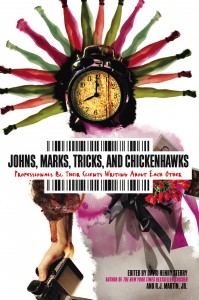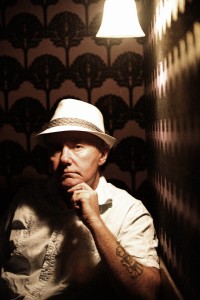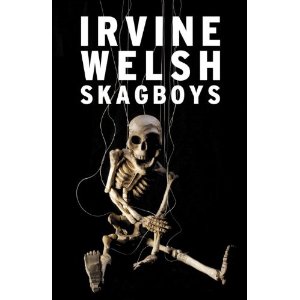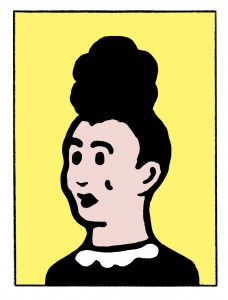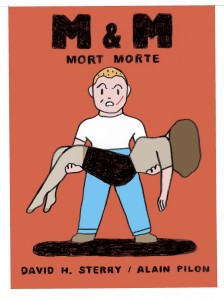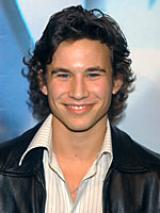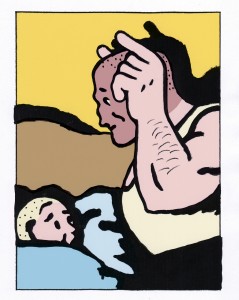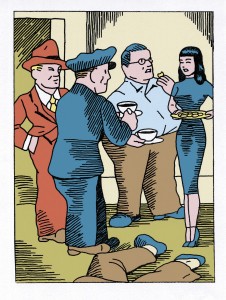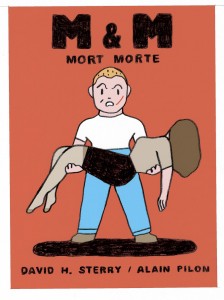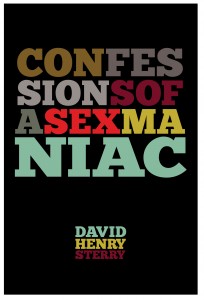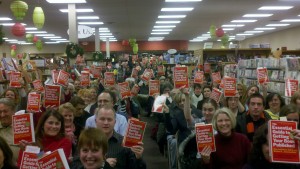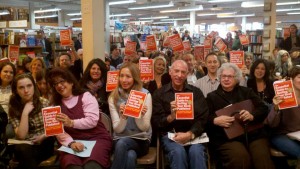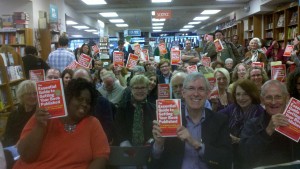WORD bookstore in Brooklyn is a fantastic bookstore. We had a lovely Art of the Novel event. Thanks to Jenn!
Category: Blog Page 3 of 7
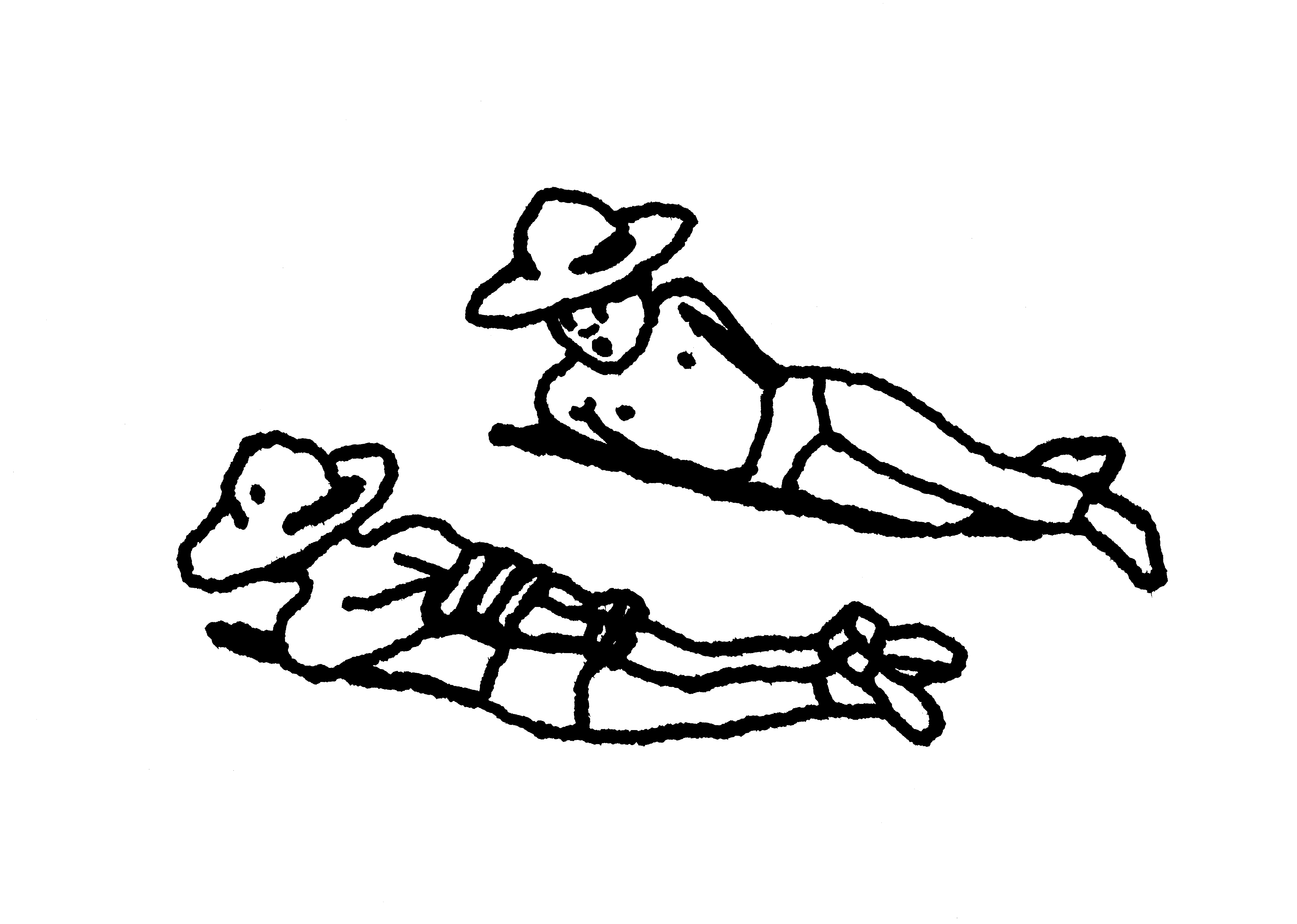
Here’s a new review for David Henry Sterry’s Mort Morte. To buy the book, click here.
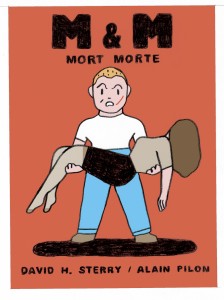
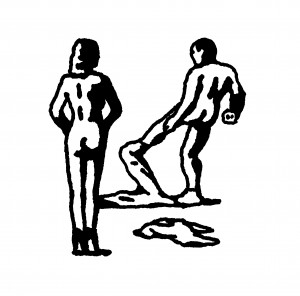 “David Henry Sterry’s Mort Morte is a work of art. It is, at once, droll, provocative, poetic, disturbing. Though there are 118 chapters, it’s a quick read. Some are merely a sentence or two. But there’s enough food for thought — the vulnerability of youth, a child’s (surprising?) ability to perceive underlying truths, mother/child bond, coming of age, sexual predators, revenge — to last a lifetime. The text is joyously concise, right to the point (no fluff), and supported by poignant illustrations. A truly entertaining yet meaningful read. Bravo to the author. Kudos to the illustrator.
“David Henry Sterry’s Mort Morte is a work of art. It is, at once, droll, provocative, poetic, disturbing. Though there are 118 chapters, it’s a quick read. Some are merely a sentence or two. But there’s enough food for thought — the vulnerability of youth, a child’s (surprising?) ability to perceive underlying truths, mother/child bond, coming of age, sexual predators, revenge — to last a lifetime. The text is joyously concise, right to the point (no fluff), and supported by poignant illustrations. A truly entertaining yet meaningful read. Bravo to the author. Kudos to the illustrator.
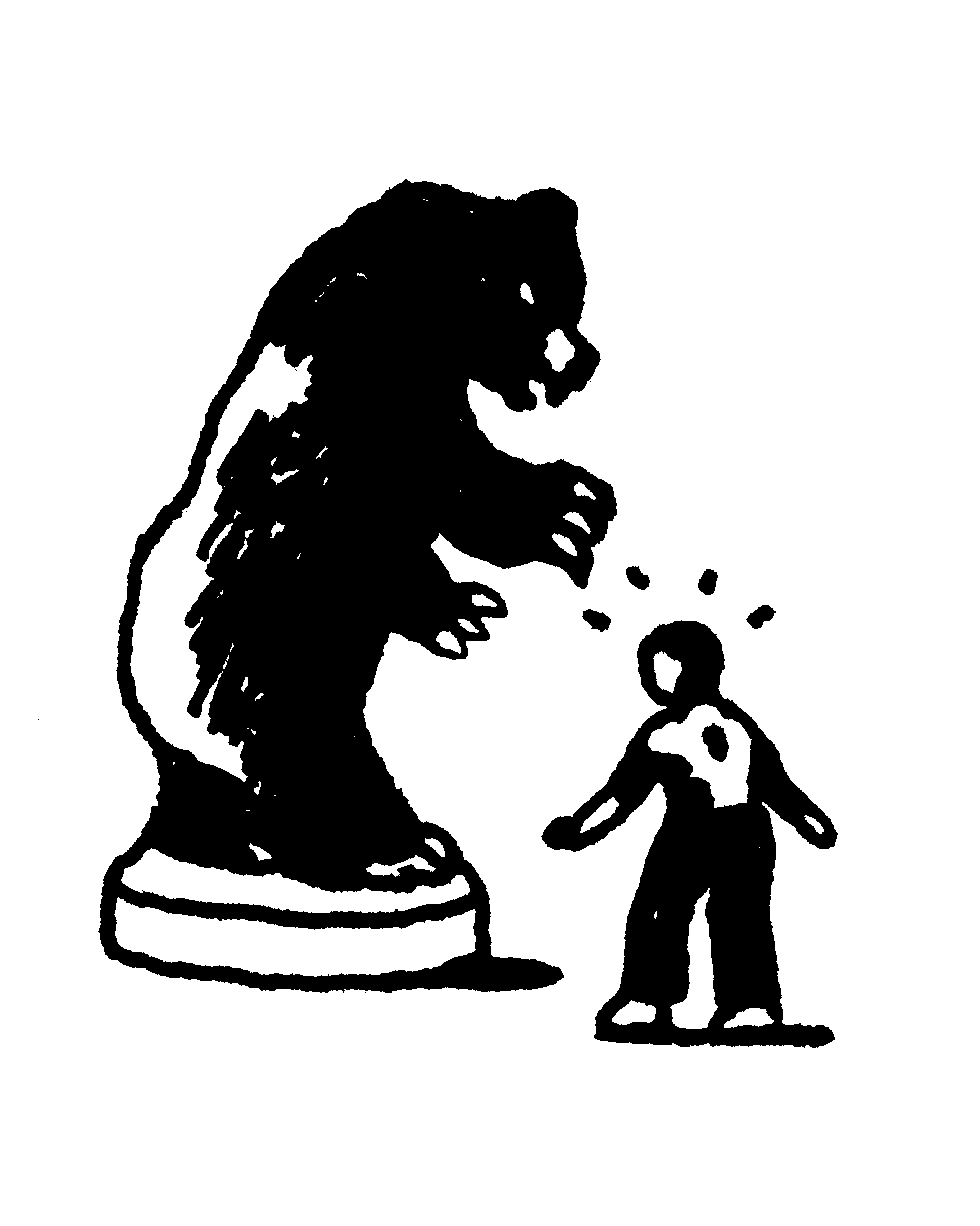
Here’s a new review for David Henry Sterry’s Mort Morte. To buy the book, click here. 
“Mort Morte is a beautiful coming-of-age story that’s frequently laugh-out-loud hilarious.”
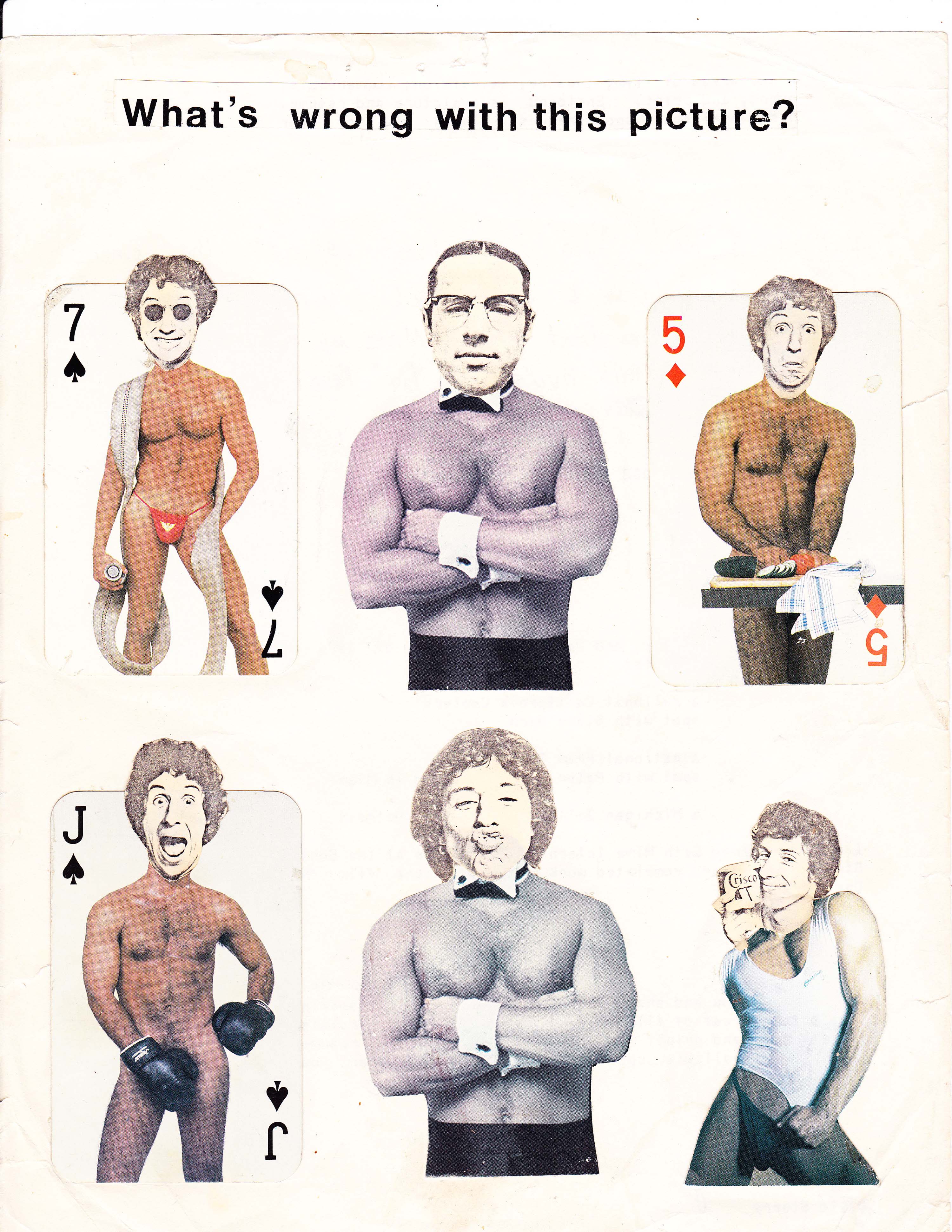
When I was Master of Ceremonies at Chippendales Male Strip club I hardly ever got laid. But I sadly watched on as sexy sexy people all around me were banging boffing & boinking.
to buy Master of Ceremonies
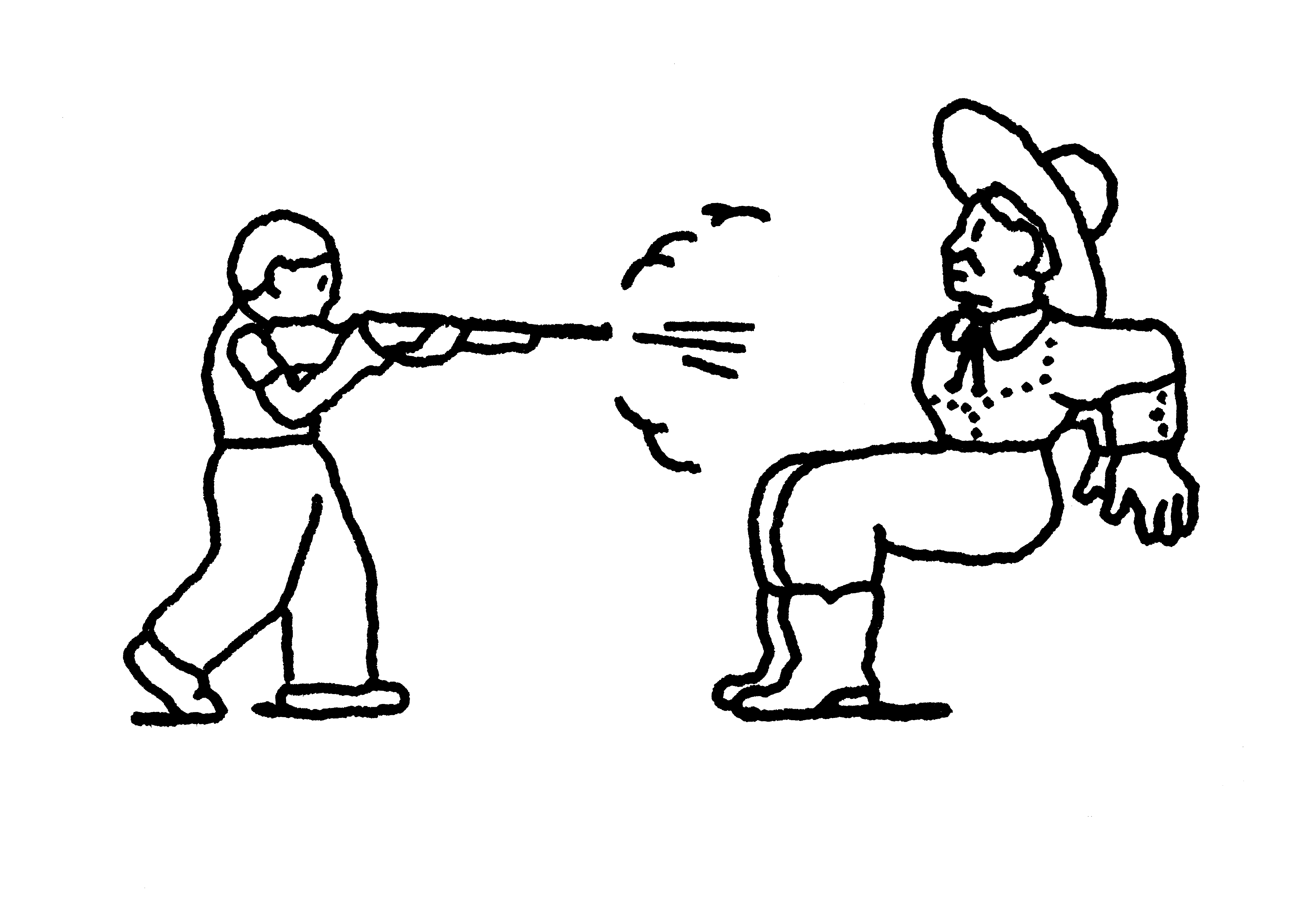
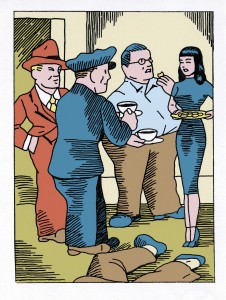
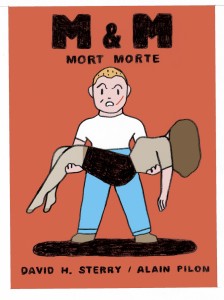 “I never give away the plot of a book when I am reviewing it. What point is there in reading a book if you already know what is going to happen in it? So I’ll give you a taste that you can roll around on your literary palate, and get a good dose of the flavor of it.
“I never give away the plot of a book when I am reviewing it. What point is there in reading a book if you already know what is going to happen in it? So I’ll give you a taste that you can roll around on your literary palate, and get a good dose of the flavor of it.
Let’s do a science experiment. Get a good-size Pyrex flask (come on, we’ll need one far bigger than THAT!). Dump in a quart of Edward Gorey, a pint of Carl Sandberg, another pint of Dylan Thomas, two tablespoons of A.A. Milne, a couple of grifters with two-day-old stubble, a binky, a pistol, a shotgun, a large quantity of testosterone, two-thirds that quantity of estrogen, a gallon of warm mother’s milk, and very carefully, standing a safe distance away, drop in a vial of nitroglycerine: KA-BOOM!!!!! You’ve got Mort Morte. I loved it. You will too, unless you’re already dead.” – Laura Schulman
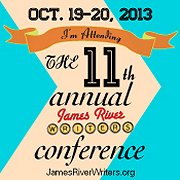

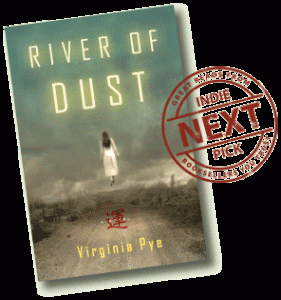 Originally published in Huffington Post.
Originally published in Huffington Post.
We first met Virginia Pye at the James River Writers Conference, one of the best writers conferences in America. If you’re a writer, do yourself a favor, get yourself to Richmond, Virginia and go to this conference. It’s filled with warm, generous, talented writers, editors and agents. When we first met Virginia Pye three years ago, she’d been writing and rewriting a novel for a very long time. It’s always exciting when you see a dedicated, talented writer who keeps evolving and changing and working, then finally gets their novel published, and actually gets lauded for it. So we thought we would check in with her to see exactly how it all happened.
The Book Doctors: Congratulations on being named an Indie Next Pick for your new novel, how did you feel when you found out?
Virginia Pye: I felt honored and excited, especially when I learned the other chosen authors, such as Caroline Leavitt, Benjamin Percy, Gail Godwin and Therese Anne Fowler. To be supported and encouraged by IndieBound booksellers means a lot to me. They’re smart and savvy book aficionados whose opinions I value. For years, I’ve read the books they recommend.
TBD: When did you start writing your book and why?
VP: Almost a decade ago as I helped my parents clear out their house, I came upon boxes of yellowed onion-skin pages with faint typescript on it. My grandfather, who was a missionary in northwestern China in the nineteen teens, had recorded his daily experience and impressions of that pre-industrialized, desolate, and yet eerily beautiful landscape. I’d always known about the roads, hospitals and schools that he had built in Shansi Province, but now I found his actual tally book in which he kept track of his converts. I felt both pride about his humanitarian successes and shame at his missionary zeal.
As I read his papers and studied the brown-tinged photographs, I was seated on an Oriental rug in the living room were I’d grown up–a room decorated with Chinese antiques and furniture. I was surrounded by my family’s history in China and I realized that, whether I liked it or not, part of my inheritance was a colonialist perspective on the world. I had not chosen it, nor felt that I shared it, but it was somehow mine to make peace with just the same.
The two main characters in my novel, the Reverend and his wife Grace, are upright, Midwestern missionaries who, over the course of their dramatic story find their faith tested and their world view shattered. It took some years for their story to fully emerge, but the germ for it began when I decided to wrestle with my grandfather’s legacy that I had previously tried to ignore.
TBD: What is your book about?
VP: On the windswept plains of northwestern China, Mongol bandits swoop down on the missionary couple and steal their small child. The Reverend sets out in search of the boy and becomes entangled in the rugged, corrupt landscape of opium dens, sly nomadic warlords and traveling circuses. He develops a following among the Chinese peasants who christen him Ghost Man for what they perceive as his otherworldly powers. Grace, his wife, pregnant with their second child, takes to her sick bed in the mission compound, where visions of her stolen child and lost husband beckon to her from across the plains. The foreign couple’s savvy, elderly Chinese servants, Ahcho and Mai Lin, eventually lead them on an odyssey back to one another and to a truer understanding of the world around them. River of Dust is a story of the clash of cultures and of retribution, and also of redemption. As the young American couple’s search for their child becomes more desperate, their adopted country comes to haunt them, changing not only what they believe but who they are.
TBD: You are involved with the James River Writers Conference, how did that community help you with the writing and selling of your book?
VP: James River Writers is a literary non-profit in Richmond, Virginia with around 400 members. I was chair of JRW for three years and on the board for close to a decade. JRW holds an annual conference each October, which is especially welcoming and friendly to writers of all types. I enjoyed working with everyone involved and made friends with many fellow aspiring writers, as well as the published authors and publishing professionals who came for the conference. Many of them were encouraging and offered to introduce me to their agents or fellow editors. JRW set a supportive and generous tone that I think everyone benefited from.
TBD: Did you hire an editor?
VP: For many years, I had worked on a previous novel that was about three generations of an American family with ties to China and Vietnam. It went through twenty-one drafts and dozens of agents saw it in various stages. They admired the writing and characters, but found that it just wasn’t quite working. Finally, I decided to take my manuscript to The Porches, a writing retreat in rural Virginia where I met author and editor, Nancy Zafris. She offered a different sort of editing experience from anyone else I’d heard of: she works with authors one-on-one over a weekend, discussing and brainstorming about the work. With Nancy’s perceptive questions, I began to see a new book emerging, one that was not a multi-generational story at all, but a compact and dramatic tale set in one year–1910–and in one setting–northwestern China. I left The Porches after that weekend with a new book in mind and a new, carefully conceived outline. I sat down on April 1st and completed a first draft on April 23rd. I had lived with the previous manuscript for so long– had wrestled with its problems and relished its strengths–that when it came time to write an altogether new version, I had enough previous connection to the characters and setting that the story came forth easily. It was both miraculous and not at all.
TBD: How did you find an agent?
VP: After I completed my marathon first draft of River of Dust, I shared it with Nancy who passed it along to her editor at Unbridled Books, Greg Michalson. He liked it and gave me a call. It was then that I realized I needed an agent. Gail Hochman had read the earlier multi-generational manuscript as well as another novel of mine. She had always been kind and thoughtful in her replies to my work, although she hadn’t taken me on as a client. I admired her authors–Michael Cunningham, Julia Glass, Ursula Hegi–so I chose to go back to her with River of Dust when Unbridled made their offer. I’m so glad I did. As everyone knows, Gail is a brilliant agent and an enthusiastic and caring person.
TBD: What are some of the mistakes you made as you wrote and tried to sell your book?
VP: In retrospect, I think that it may have been a mistake to work for so long on that previous novel. If something isn’t working, tinkering with it probably won’t help. To give myself more credit, I did revise–sometimes extensively–but I still wanted that manuscript to be the book I had in mind from the start. I was determined to bend the characters and plot to fit the book I envisioned. Somehow I wasn’t listening well enough to the voices of smart readers, or even my own voice that was whispering that it just wasn’t working. The manuscript was telling me that it needed to be altogether different. I was trying to write a book with a complicated structure before ever truly perfecting a simpler one. Perhaps there’s a lesson in that, too: succeed first at something smaller, before trying to tackle your opus. Come to think of it, I know a number of writers who have been working on big books for years and those projects never seem to come to fruition. Perhaps aiming for something less baroque and yet doing it well is a better way to go with a debut novel.
TBD: How do you plan to promote and market your book?
VP: I’ve written a number of essays about the backstory for my novel. “A Zealot and Poet,” about my grandfather, will appear in May in The Rumpus. I’m excited to be interviewed at Caroline Leavitt and David Abrams’s blogs and in The Nervous Breakdown. Excerpts from River of Dust will also soon appear in The Nervous Breakdown, and in The Collagist and DearReader.com. I had a great time creating a playlist for River of Dust for the Largehearted Boy. Unbridled has done a great job of setting up book events up and down the East Coast: in Richmond, Charlottesville, Alexandria and Norfolk, Virginia; New York, Boston and Western Massachusetts. I’m excited about all my events, but a few in particular stand out for me: a reading in the Lucian W. Pye Room at M.I.T. (named for my father who was a prominent Political Scientist there); a reading at Back Pages Books in Waltham, Massachusetts, at which my four closest high school girlfriends are coming in from around the country to cheer me on; and what I think will be a great evening at the China Institute in NYC, where I’m eager to share my work with China enthusiasts and experts and look forward to learning from my audience.
TBD: What are some of your favorite things about being a writer? And what are some of the things you hate about it?
VP: I am completely biased towards writers and writing. I think there’s nothing better to do with one’s life. OK, being a visual artist or musician is pretty good, too. And my husband is a contemporary art museum curator and that’s not half bad. But, as a writer, you have carte blanche to express your vision of the world, however quirky it may be. You can read voraciously and remain a dilettante. Aleksander Hemon recently said, “Expertise is the enemy of imagination.” As someone who has written a novel set in a country where I have never been, I agree. People ask if I did a lot of research before writing River of Dust. I did only as much as I needed to ignite my mind, which, as it turned out wasn’t a great deal–again, perhaps because I’d grown up with a visceral understanding of China passed down to me through two generations. I think that writers have an obligation to be thoughtful in their work. Good writing needs to offer meaning on several levels at once. A novel that has strong storytelling doesn’t need to sacrifice that goal. I hope that River of Dust is both a page-turner and an intelligent read. I love Philip Roth’s rallying cry to writers at his eightieth birthday and on the occasion of his retirement from writing: “This passion for specificity, for the hypnotic materiality of the world one is in is all but at the heart of the task to which every American novelist has been enjoined since Herman Melville and his whale and Mark Twain and his river: to discover the most arresting, evocative verbal depiction of every last American thing.” The only down side to writing is that it’s no easy task. But who ever wanted easy when trying to live a meaningful life?
TBD: I hate to ask you this, but what advice do you have for writers?
VP: Pay attention to the market: to what agents tell you at conferences and on Twitter; to what your independent bookseller says about the books he or she endorses; to what your most thoughtful and serious readers say about your manuscript. And then, put it all on the backburner while you write. Let it simmer in the back of your mind as you write the book you want to write. If their advice has resonated then it will help shape the next draft. Stick with the manuscript until it’s done and don’t start to shop it around too early. If you’re as eager as I was with numerous manuscripts, most likely you’ll shop it around too early. When you’ve written what you are truly proud of–after listening carefully for any hesitations and heeding them–reach out to agents and published authors with graciousness and gratitude. The publishing world is not waiting for you, but on the other hand, it can’t exist without you. So take up your rightful place, but politely and while keeping in mind that we’re incredibly lucky to be doing this thing that we love. At least, that’s how I try to approach it.
Virginia Pye’s debut novel, River of Dust, is an Indie Next Pick for May, 2013. Her award-winning short stories have appeared in numerous literary magazines. She holds an MFA from Sarah Lawrence, taught writing at New York University, and The University of Pennsylvania, and has helped run a literary non-profit in Richmond, Virginia. For more about her, visit: www.virginiapye.com
The Book Doctors have helped dozens and dozens of amateur writers become professionally published authors. They edit books and develop manuscripts, help writers develop a platform, and connect them with agents and publishers. Their book is The Essential Guide to Getting Your Book Published. Anyone who reads this article and buys the print version of this book gets a FREE 20 MINUTE CONSULTATION with proof of purchase (email: [email protected]). Arielle Eckstut is an agent-at-large at the Levine Greenberg Literary Agency, one of New York City’s most respected and successful agencies. Arielle is not only the author of seven books, but she also co-founded the iconic company, LittleMissMatched, and grew it from a tiny operation into a leading national brand that now has stores from Disneyland to Disney World to 5th Avenue in NYC. David Henry Sterry is the author of 15 books, a performer, muckraker, educator, and activist. His first memoir, Chicken, was an international bestseller, and has been translated into 10 languages. His anthology, Hos, Hookers, Call Girls and Rent Boys was featured on the front cover of the Sunday New York Times Book Review. The follow-up, Johns, Marks, Tricks and Chickenhawks, just came out. He has appeared on, acted with, written for, worked and/or presented at: Will Smith, Edinburgh Fringe Festival, Stanford University, National Public Radio, Penthouse, Michael Caine, the London Times, Playboy and Zippy the Chimp. His new illustrated novel is Mort Morte, a coming-of-age black comedy that’s kind of like Diary of a Wimpy Kid, as told by Travis Bickle from Taxi Driver. He loves any sport with balls, and his girls. www.davidhenrysterry To learn how not to pitch your book, click here.

Interview with David Henry Sterry for Johns Marks Ticks & Chickenhawks in San Francisco Weekly by Chris Hall
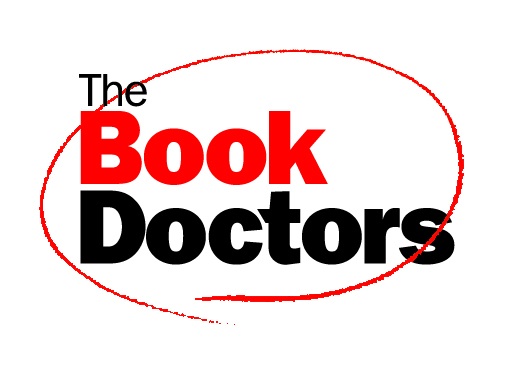
“One time, I only held a job for three hours. I hired as a lighting technician at the Brooklyn Academy of Music in the early 1970s,” recalled author Steve Turtell. “I nearly killed someone when I lost my grip on a ladder that I was holding up—it just started falling and I froze! Luckily, a lighting cable stopped it from falling all the way over. After that, the guy who hired me asked me to leave.”
Mr. Turtell was in the sunken auditorium at the office of Workman Publishing, an independent publishing house in the West Village on Thursday evening, ready to pitch his book “50/50: 50 Jobs in 50 Years, a Working Tour of My Life.” (He has also worked as a nude artists’ model; a research assistant at PBS; a janitor at Gimbel Brothers; a fashion coordinator at Joyce Leslie; a butcher; a baker; and the director of public programs at the New-York Historical Society.)
Click —> HERE to read the full story on the Wall Street Journal.
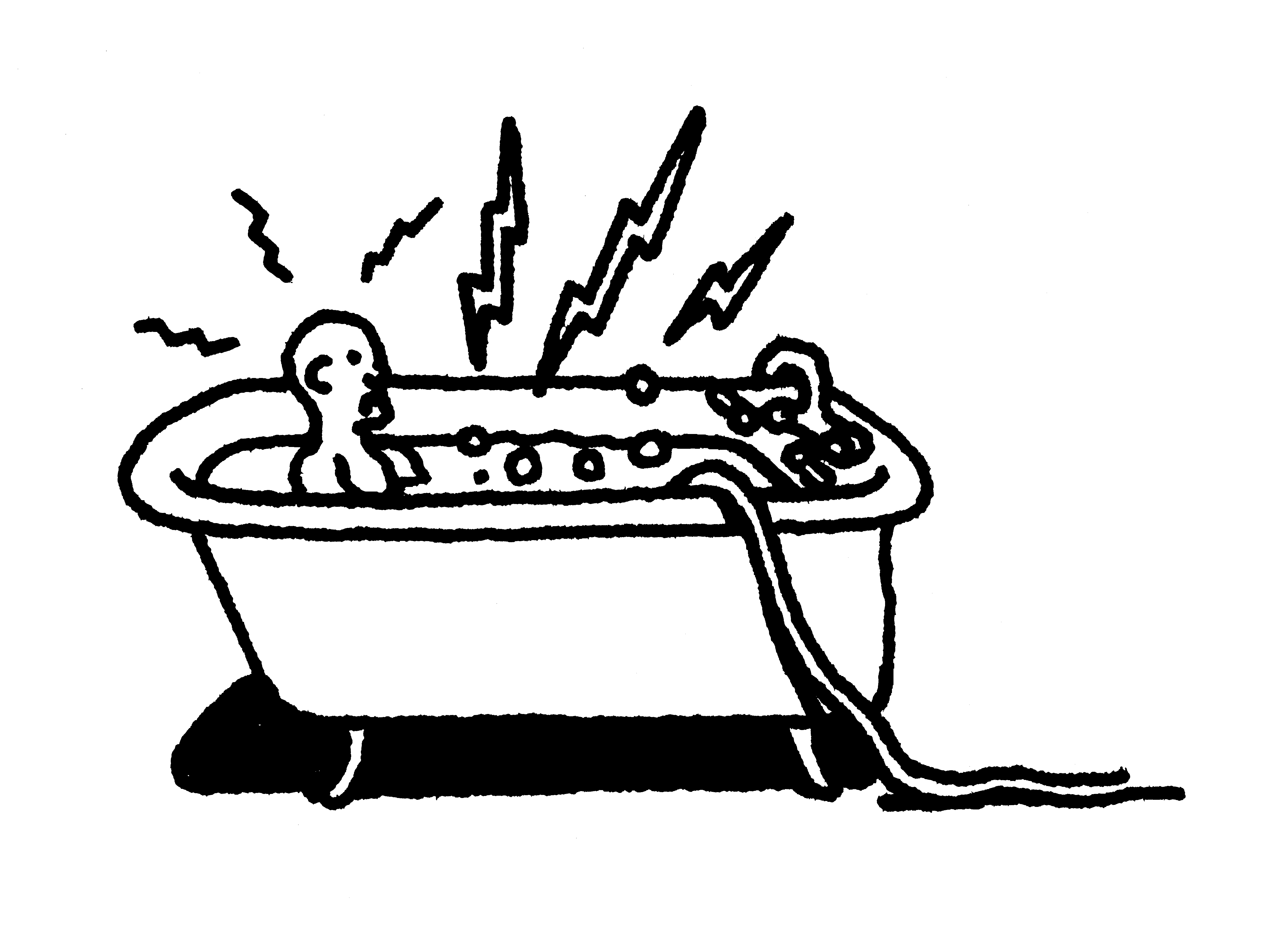
Here’s a new review for David Henry Sterry’s Mort Morte. To buy the book, click here.
“Mort Morte by David Henry Sterry reads like an elegantly simple children’s book designed for adults. The chapters are rarely more than a page long and sometimes just a few words in length. While the format of the book is basic, with beautifully placed and executed illustrations by Alain Pilon, the story centers around adoration, violence, emotional, physical, and sexual abuse and revenge.
Mort Morte is a brutal coming-of-age story that’s frequently laugh-out-loud hilarious.
The narrator, Mordechai Murgatroid Morte provides a rollicking ride through the culture of a sophisticated and rough-and-tumble Texas with a dash of Harvard thrown in. Sterry’s use of the English language is masterful and sometimes whimsical, i.e. “The animal heads started spinning round faster and faster like I was on some kind of sick Taxidermilogical Tilt-A-Whirl….” At times Sterry’s writing is so raw it’s painful which is quickly eased by the guilty relieving pleasure of high humor. 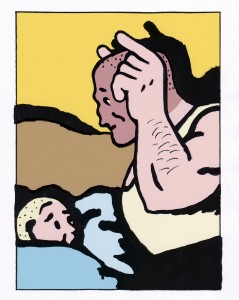
Sterry has created a sympathetic character in Mort which is no easy challenge. Throughout his young life Mort suffers from fantastical anxiety dreams, he pulls rhythms and lyrics from melodies that mirror his moments of ecstacy, and at one point sums up his life “as a curious mixture of violent nausea and dizzying sexual fantasy.”
There’s a lot to like in this short, breezy book, notably its imaginative style and David Sterry’s love of language. No words are wasted here; Mort Morte succeeds mightily by saying a lot with a little.” – Liz Bulkley
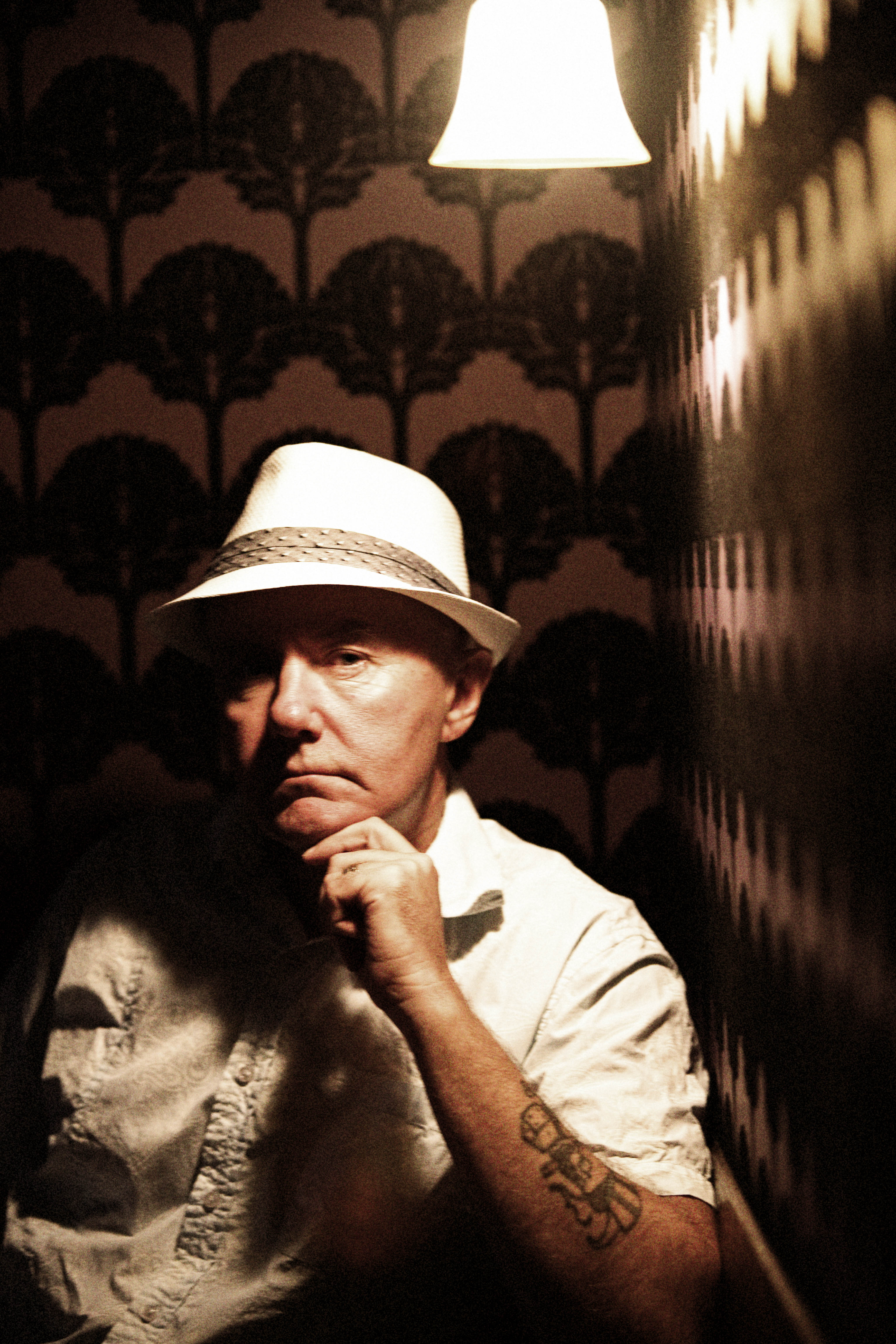
The Book Doctors, book editors and friends to writers everywhere, & David Henry Sterry, interview Irvine Welsh, author of Trainspotting & Skagboys, on Huffington Post http://huff.to/135K8zB
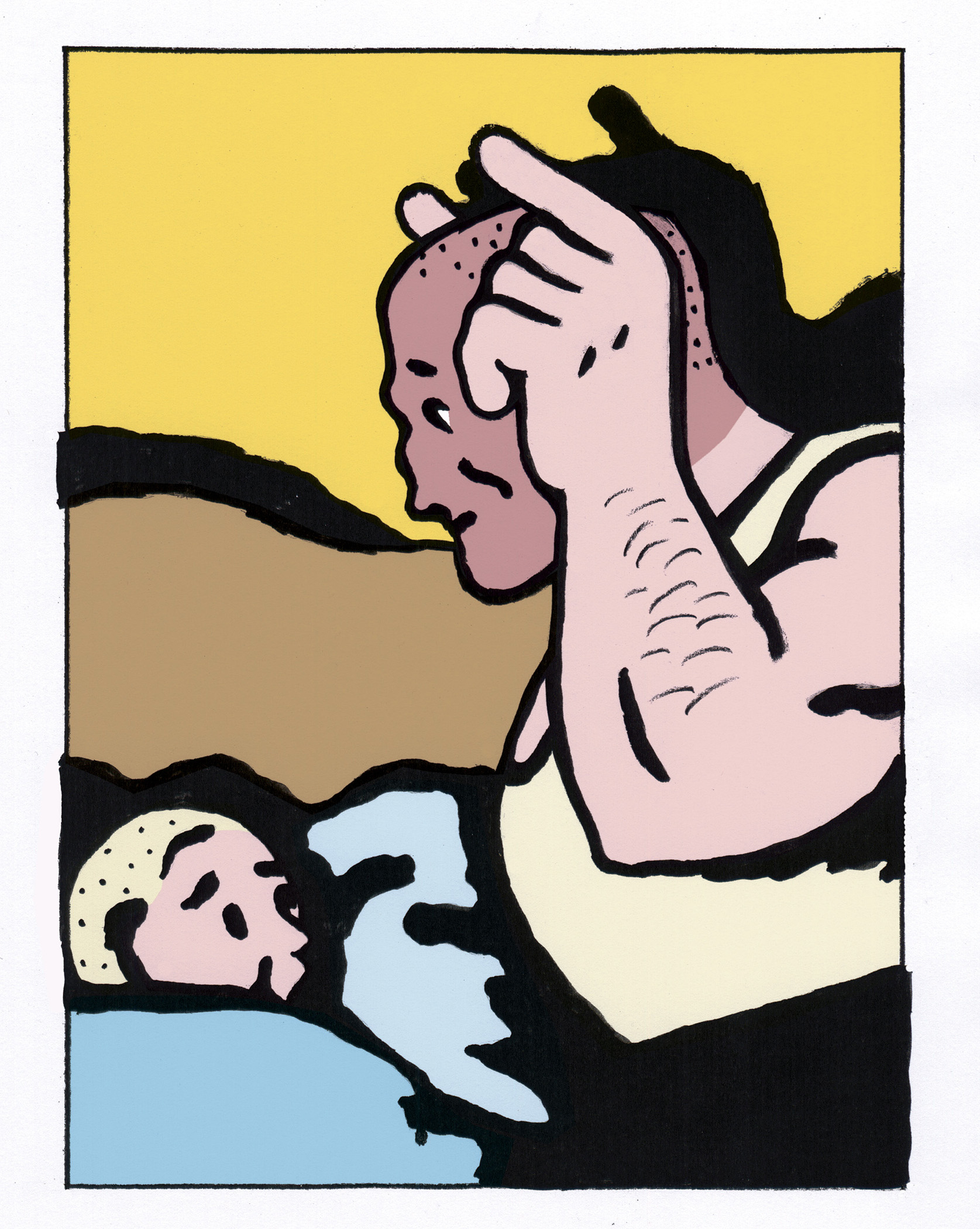
“A lyrical roller coaster ride through the dark mind of a young serial killer. A post-modern fairy tale about what happens to a boy who is continually abused and bullied. The plot is surreal, but somehow all too real! I was quickly sucked in and enjoyed the book.” – Mateo
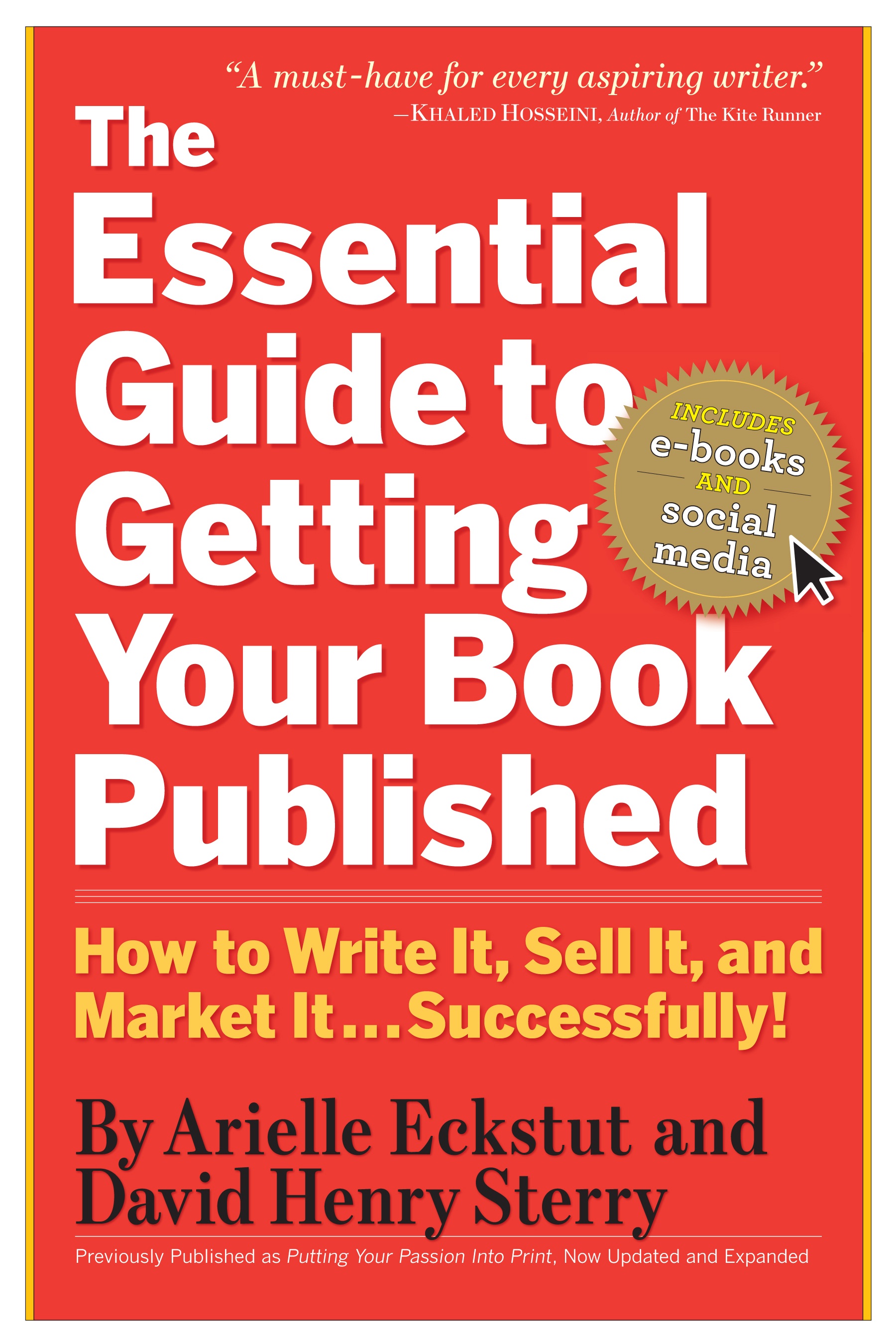
The Essential Guide to Getting Your Book Published – A Surrogate Agent

The Swedish publishing industry differs from the American in one fundamental way: except for handling foreign rights of already established authors, we don’t do agents. As an unpublished author, you send your unsolicited manuscript directly to the publishing companies, and in the rare an unlikely event of being accepted by one, you’re on your own. The Essential Guide to Getting Your Book Published helped me navigate in the strange and uncharted waters that are having your book published, acting all the way as a sort of surrogate agent.
Before submitting my manuscript, I read the chapters on The perfect package and Locating, luring and landing the right agent and worked hard on perfecting my pitch and writing the perfect personal query letter – eventually eliciting comments from my publisher on how refreshing it was to read such a professional personal query letter.
After having signed up with one of the major publishing companies in Sweden, The Essential Guide to Getting Your Book Published kept me informed through all the different stages of the process. It allowed me to relax, secure in the knowledge of what would happen next, and made it possible for both me and my publisher to focus on the important issues – namely, making sure my book was everything it could be. Above all, it helped me to be professional and friendly in my dealings with my publishing company: delivering on time, doing slightly more than what was expected of me, and acknowledging the hard and dedicated work several people did for my book. It resulted in an incredible support and personal commitment from my publisher, editor, publicity and marketing team, and sales representatives. If you’re only going to read one section – it’s Agent Relations.
Katarina Bivald is the author of The Readers in Broken Wheel recommends about a Swedish book nerd suddenly stranded in a small town in Iowa. It will be published in Sweden in September 2013. For more information, please contact Judith Toth on Bonnier Group Agency – [email protected]
Don Corleone, Scarface, Twyin Lannister. How the Lord of Casserly Rock is the next in a long and glorious tradition of badass noir crime bosses. From Criminal Element.

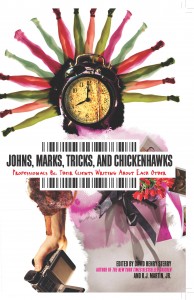 This collection of personal essays by sex workers and their clients vacillates wildly from hilarious to depressing but never strays from being utterly captivating. Among the more amusing stories are a client with a “sweater fetish”, a woman who paid for her family’s Christmas presents by stepping on a man’s testicles in a pornographic film, and the dominatrix who got fired because she could not remove a client’s tooth. The phone sex operator asked to do cartoon animal voices for a caller is also not to be missed. Candid essays cover everything from the anonymous “captain of industry” with an appreciation for transsexual prostitutes, to the human misery of a pimp who turned out his own girlfriend. Some pieces are more meditative: Fiona Helmsey recalls meeting a kind client at a bachelor party who later died on 9/11, while Dr. Annie Sprinkle discusses her 40 years in the sex industry and her wish for “a more compassionate sex-positive society” in which “prostitutes and johns would be government-subsidized”. Though obviously not for the faint of heart, this book contains some courageous, raw, and intelligent writing that breaks taboos and smashes misconceptions. (Apr.)
This collection of personal essays by sex workers and their clients vacillates wildly from hilarious to depressing but never strays from being utterly captivating. Among the more amusing stories are a client with a “sweater fetish”, a woman who paid for her family’s Christmas presents by stepping on a man’s testicles in a pornographic film, and the dominatrix who got fired because she could not remove a client’s tooth. The phone sex operator asked to do cartoon animal voices for a caller is also not to be missed. Candid essays cover everything from the anonymous “captain of industry” with an appreciation for transsexual prostitutes, to the human misery of a pimp who turned out his own girlfriend. Some pieces are more meditative: Fiona Helmsey recalls meeting a kind client at a bachelor party who later died on 9/11, while Dr. Annie Sprinkle discusses her 40 years in the sex industry and her wish for “a more compassionate sex-positive society” in which “prostitutes and johns would be government-subsidized”. Though obviously not for the faint of heart, this book contains some courageous, raw, and intelligent writing that breaks taboos and smashes misconceptions. (Apr.)
http://v2.publishersweekly.com/978-1-59376-507-1
to buy the book: http://amzn.to/Yg0Lp8
book trailer: Who Really Buys & Sells Sex
Gayle Shanks of Changing Hands Bookstore on How Writers Can Work with Booksellers to Achieve Success
We first met Gayle Shanks when we did an event at her bookstore Changing Hands in Tempe, Arizona. Never having been to Tempe, our expectations were low. Our expectations were blown out of the water. They packed the place. We were duly impressed. Turns out Gayle and Changing Hands have managed to make themselves an essential part of their community. They’ve got a phenomenal collection of books, amazing T-shirts and merchandise, and a wildly knowledgeable staff that absolutely loves books. They also bring in fantastic authors to do events, and really encourage self-publishers. So we thought we’d sit down and have a conversation with Gayle to see exactly how she has managed to keep her bookstore thriving, and in fact expanding at this moment in history when people keep trumpeting the death knell of the bookstore.
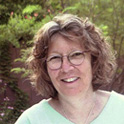
The Book Doctors: So, what prompted you to get into the ridiculous book business in the first place?
Gayle Shanks: When we started thinking about selling books it wasn’t a ridiculous business. Publishers and booksellers were thriving in 1974. There were dozens of independent stores in most cities and people were reading and and buying books. The chains, Borders and Barnes and Noble were smaller and named B. Dalton and Walden Books. They were mostly in shopping centers and didn’t seem to have a large impact on booksellers on Main Streets. Our stores for the most part were small, intimate spaces catering to our local communities and building readers from childhood through old age.
How has the book business changed since you first got into it?
Dramatically. In addition to the “B” chains expanding throughout the country and knocking out the local stores with their over zealous number of stores and retail selling space, Amazon joined the ranks in the 90s and changed the way the public thought about buying books. It’s not necessary to write about the impact Amazon has had but more interesting I think is the innovative ways that indie stores have struggled and evolved and managed to stay around in spite of the stiff and often unfair practices from the chains.
We keep hearing how bookstores are in terrible shape, but we’ve noticed that there are certain bookstores that are going gangbusters, and we would definitely put Changing Hands into that category. What do you do to keep your bookstore relevant and booming?
We change every day in small and large ways. We respond to trends, to our customers’ suggestions, to our employees ideas, to our community’s desires. We think outside the box and have made our store a destination, a Third Place for people to hang out, interact, bring their children, meet authors, have fun. We are an event producer and have over 400 events — large and small — each year inside and for really large events, outside our store. Our gift department with larger profit margins keeps books on our shelves longer and have helped create Changing Hands as a one-stop shopping experience for our customers. We provide gifts for all major holidays and birthday party presents for many, many children in our town. Books and gifts are a natural together and compliment one another. Our used books and remainders offer bargains for those who can’t afford full price new titles and the quality and quantity of them on our shelves offer people lots of choices and price points.
What mistakes do you see amateur writers making over and over again?
Oh so many mistakes — bad covers, not finding a good editor, writing a story that is great for their family but has no commercial appeal, bad writing in general, boring stories. And, an unwillingness or no knowledge of how to market the book once they have written it. It’s a very hard world for writers and self-published writers have an even harder time than those who can find agents and publishers to support them.
What things do you see professional writers do that help them become successful?
They learn to speak well in public. They are great social media people with followers on Twitter and Facebooks and they write great blogs. They interact with their readers and encourage them to share their books with their friends. They befriend their local bookseller and establish relationships with them that will carry over book after book. They make connections with key buyers at indie stores all over the country and cultivate those connections.
When you read a book, what attracts you and what repels you, in terms of putting it on your shelves?
Good writing and an interesting subject always attract me initially, but I have so many books to read that the arc of the story or good character development must happen quickly or I go on to something else. I am always looking for new authors and rely on my sales reps and fellow buyers to alert me to new books coming own the pike. I relish books by authors that I’ve read and loved and can’t wait for them to write another book. Sometimes I’m disappointed but usually not. I read about a book a week and 52 books isn’t that many to read in a year when there are so many published. I have to be somewhat selective but rarely go a day without starting something new. I have a book on CD in my car at all times and listen as I drive even though my commute is only about 10 minutes.
What you see as the future of books and publishing?
I think people are always going to read and I think the trend of reading on devices is going to be short-lived beyond those whose eyesight prohibits them from reading physical books. I think people are tired of staring at computer screens all day and will, after a few more years, not choose them as the way to read for pleasure. E-books will work for long trips to Europe when the weight of many books is too unwieldy for our suitcases but reading in bed and on the beach and on the couch, in my humble opinion, is best done with a book resting on my stomach or in my lap while I sit on a beach chair.
We understand you’re expanding, how did that come about?
A huge hole exists in our community now that most of the chains have left central Phoenix. Most of the indie stores were closed years ago because they weren’t supported by customers who became enthralled with Amazon and buying ‘cheaper’ at the chains. People have been begging us to open a Phoenix store for years now and the opportunity came up when a developer whose vision of a gathering place for the community centered on a bookstore asked us to partner with them on a project that will be truly exciting, innovative and creative. We are rehabbing an old adobe building and it will include our store, a great restaurant and a collaborative/flexible office space. We are planning a store that is smaller by half the size our current store and it will be carefully curated and include a wine and beer bar as well as a commons area where we can host events. The building is across the street from a light rail stop, will include lots of bike racks and we will encourage the urban shopper to
‘think green’ and shop locally.
What can writers do to connect with their local independent bookstore, and why should they?
Buy books at our stores — not on Amazon. Encourage their friends to do the same. Give readings at our stores. Converse with our customers. Suggest books to the buyers that they are reading and are excited about. Don’t stop talking about how important indie stores are to the community of readers and writers. Understand that without indie stores there will be no discovery of new authors, no support of mid-list writers, no venue for discussion and discourse. No young readers growing up attached to their booksellers and their books.
We hate to ask, but what advice do you have for writers?
Keep writing great books so those of us addicted to reading great books can look forward to the next great read. Stay true to your profession and study it. Learn from your mentors and favorite authors. Stay connected to the culture.
When Gayle Shanks isn’t not working in her garden, she is usually reading or watching reruns of West Wing and ER. She loves contemporary fiction, mysteries and memoirs. Occasionally you’ll find her reading essays by people like Malcolm Gladwell, Paco Underhill, Daniel Pink or John McPhee.
How to build your social network/platform without getting lost in the time suck.
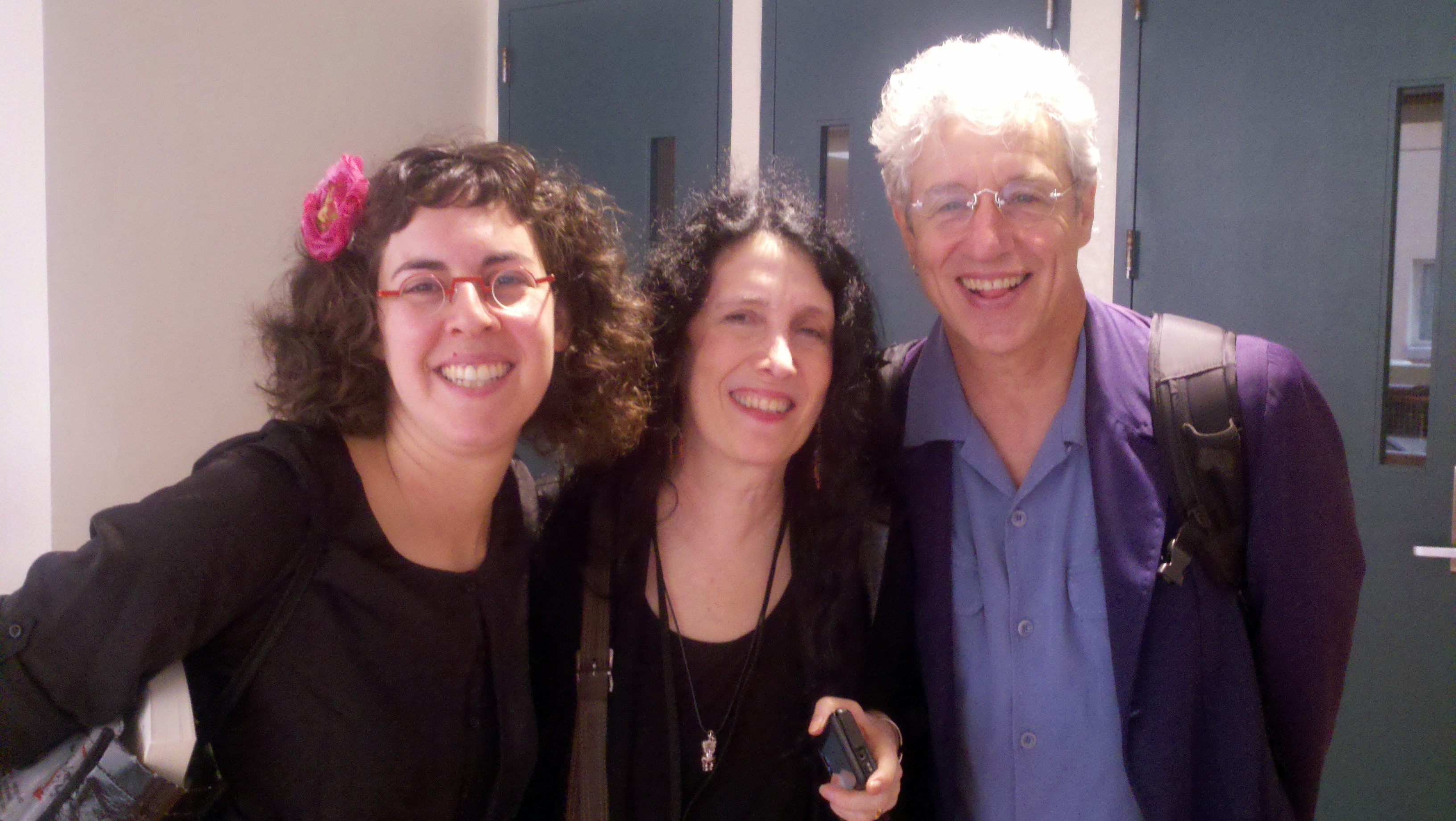
Caroline Leavitt On Overcoming Nasty Writing Teachers, How to Write a Bestseller and Never Giving Up
We first met Caroline Leavitt at the Miami Book Festival. If you ever have the chance to go to the Miami Book Festival, do yourself a favor and don’t pass up the opportunity. Not only is it one of the great international book festivals in the world, it’s also the kind of place you run into people like Caroline Leavitt. Not only is she an incredibly accomplished novelist, she’s also a crackerjack human being. Lots of writers tend to be shy at best — standoffish, churlish and surly at worst. Caroline is the exact opposite. She welcomes you with open arms. If you don’t believe me, just go to her Facebook page. It’s a continuous font of information, fun and love. And she’s also that rare bird who’s managed to somehow write literary novels that sell. So we decided to take a little peek into her world and see what makes Caroline Leavitt tick.
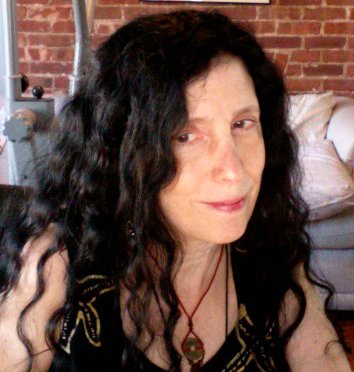
THE BOOK DOCTORS: How did you get into the book business to begin with?
CAROLINE LEAVITT: I was an outcast in suburbia with three big strikes against me: I was the only Jewish kid in a Christian neighborhood (my mother had to march up to the school to complain about a second grade test that asked questions about Jesus), I was sickly with asthma, and I was smart (only 10 percent of my high school went on to college. The rest joined the navy or got pregnant). I learned to live in books and I discovered I could keep myself from being beaten up by making up stories! The first time I told a story in front of the 5th grade and they didn’t throw spitballs at me or threaten me, I thought, how cool is this? This is what I want to do! But of course I heard no, no, no. When I got to Brandeis, I studied with this famous writer who told me I’d never make it. He used to slam my work in class while tears streaked my face, but I refused to leave the class. The day I published my first novel, I sent it, along with a rave NYT review to the professor, saying, “Hey, you were wrong.” He wrote back and said, “Oh, I just wanted to make you angry enough to keep pushing on.” I laughed and didn’t write back. I kept writing and writing and every week, those stupid self addressed stamped envelopes would bounce back with rejections. One day they came back and I ripped them both up into pieces. I happened to look down and there was one tiny, shining word: CONGRATULATIONS. I had sold a story and that story got me an agent, which got me my first novel.
TBD: What are some of the some of things you enjoy about writing?
CL: The fact that I can live other lives. The fact that I don’t have to dress coherently to do it. The fact that it keeps me sane. I write about what haunts me and I write the books I myself am dying to read. I love it. I can’t think of anything I’d rather do.
TBD: How do you turn off the voice in your head that says you suck?
CL: What makes you think I can? I can’t turn that voice off. It is always in my head. It always goads me to get online and compare myself to other writers. It pushes me into all sorts of magic thinking like tarot card spells and prayers to the universe: please don’t let me suck. My big revelation was one day when I got the best review I ever received in my life from the Cleveland Plain Dealer — they thought I was a genius! And then five minutes later, I got the worst review I ever received from the Phil. Inquirer who loathed everything the CPD had loved. I had a moment when I realized, not everyone is going to love me. I try to tell myself to go deeper, to just write and write and write about what matters to me, to not think about readers and critics or anything but the story. And I eat a lot of chocolate.
TBD: Do you ever get writer’s block, and if so would you do about it?
CL: I never get it. I’m always working and there’s never enough time!
TBD: Do you ever make decisions in your book based on what you think is going to make the book more commercially successful?
CL: Never. Not ever. You can’t second guess what is going to be commercially successful. You have to write the book you want to write. And wait, actually. My third novel, for a publisher that went out of business, I was pushed into writing a book that was “more commercially.” It got only two reviews, both of them so terrible I could barely leave my apartment for months, and the book died soon after. After that I vowed to never ever write anything I didn’t feel.
TBD: Do you outline your stories or do you make it up as you go?
CL: I’m big on story structure. I studied with John Truby, who mapped out story by means of moral wants and needs, and that’s what I do. Hey, so does John Irving.
TBD: Do you finish the whole draft before you go back and edit, or do you edit as you go?
CL: I do both. I edit as I go, and I must do about ten thousand drafts. Well, more like 23. And I’m serious about that.
I love rewriting because that is where and how you discover the story. It’s like you have this skeleton and you get to put flesh on it and hair and clothes and really wonderful jewelry.
TBD: You have such a fun Facebook life, what is your guiding principle in social media?
CL: Being honest. You can tell when people are trying to do what they think they should do. I’m intensely curious about everyone’s lives and I want to get to know a lot of people. I also don’t hesitate to say how I feel or what’s going on. I am who I am. (Popeye 101) I spend so much time every day alone and writing, that social media is my water cooler. I crave contact.
TBD: Were you working on right now?
CL: My novel Is This Tomorrow, about a 1950s suburb, paranoia and a vanished child, is coming out in May, so I’m doing all this prepublicity type stuff, and I sold my next novel, Cruel Beautiful World (thanks to my 16-year-old for the title!), to Algonquin on the basis of a first chapter and an outline. So I’m writing that now, deeply immersed in that moment in when the ’60s turned into the ’70s and things got ugly.
TBD: Where you see the future of books going?
CL: I think it’s going to boom. People love stories. They need stories. More people are reading on ereaders. I know a few NYT bestsellers who self-published their next book to have more control. Maybe I’m stupidly optimistic but I can’t imagine a world without books.
TBD: I hate to do this to you, but you have any advice for writers?
CL: Yep. Never ever give up. Don’t listen to all the no’s but keep writing. Keep writing. My career was over, so I thought, when my ninth novel, Pictures of You, was rejected by my then publisher as not being “special enough.” I had no sales. No one knew who I was. I called all my friends in tears and one suggested her editor at Algonquin. So I wrote up a paragraph about the book and sent it to her. She liked it and a few weeks later, she bought it and all of Algonquin was doing the unthinkable–the thing that had never happened to me–treating me with respect. They took that unspecial book and turned it into a NYT bestseller and a USA Today ebook bestseller and it got on the Best Books of 2011 lists from the San Francisco Chronicle, the Providence Journal, Bookmarks Magazine and Kirkus Review. I feel like I’m the poster girl for second chances.
Caroline Leavitt is the author of many novels, several of which have been optioned for film, translated into different languages, and condensed in magazines. Her ninth novel, Pictures of You, was a New York Times bestseller, and was also on the Best Books of 2011 lists from the San Francisco Chronicle, the Providence Journal, Bookmarks Magazine and Kirkus Reviews. Her new novel, Is This Tomorrow, will be published May 2013 by Algonquin Books. Cruel Beautiful World will be published sometimes in 2015 by Algonquin. Her essays, stories, book reviews and articles have appeared in Modern Love in the New York Times, Salon, Psychology Today, the New York Times Sunday Book Review, People, Real Simple, New York Magazine, the San Francisco Chronicle, Parenting, the Chicago Tribune, Parents, Redbook, the Washington Post, the Boston Globe and numerous anthologies. She won First Prize in Redbook Magazine’s Young Writers Contest, was a 1990 New York Foundation of the Arts Award, a National Magazine Award nominee for personal essay, and is a recent first-round finalist in the Sundance Screenwriting Lab competition for her script of Is This Tomorrow. She teaches novel-writing online at both Stanford University and UCLA, as well as working with writers privately. She lives in Hoboken, New Jersey, New York City’s unofficial sixth borough, with her husband, the writer Jeff Tamarkin, and their teenage son Max.
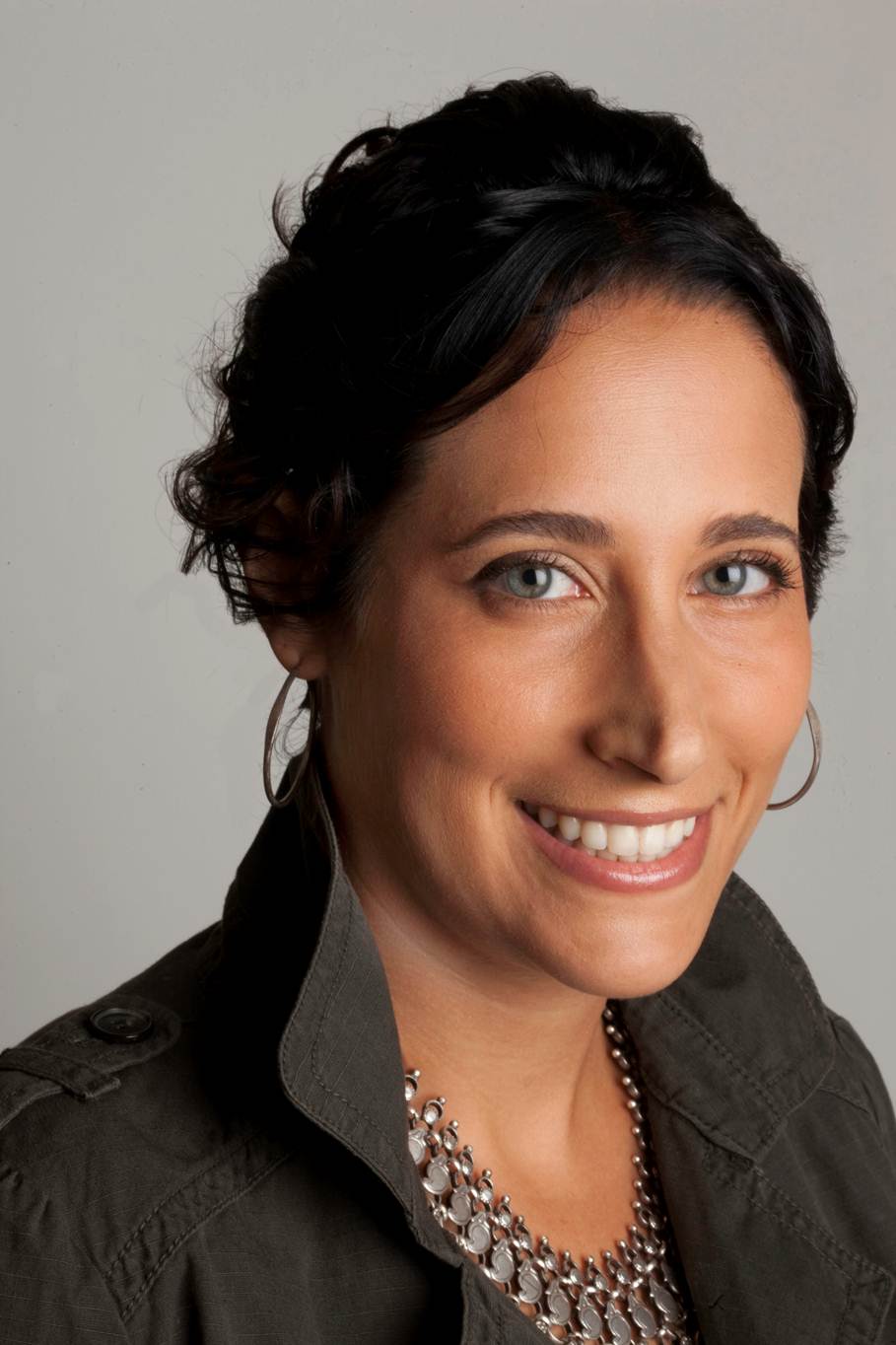
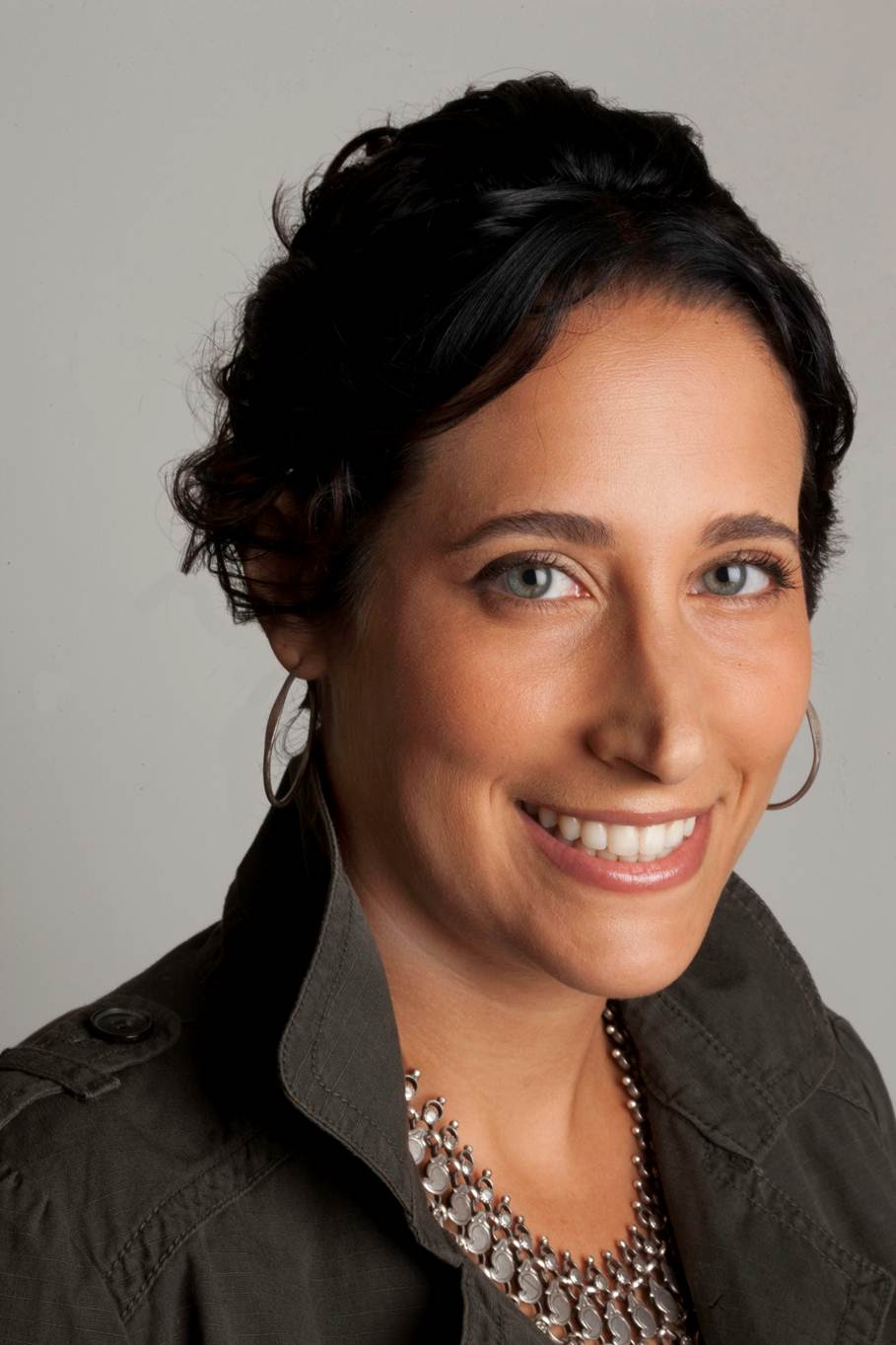
A couple of years ago we did a Pitchapalooza (think American Idol for books) in Kansas City. Our winner, Genn Albin, gave an outrageously amazing pitch for her dystopian YA trilogy. This led to an enormous buzz around her book, Crewel. Many agents were interested in her and she asked us for our advice on this most monumental of decisions. We told her, hands down, Mollie Glick was the way to go. Mollie got her a mid-six-figure three book deal with one of the best publishers in America, Farrar Strauss Giroux. Mollie is that rare agent: smart, wise, savvy, and nice. So we thought we’d pick her brain about the state of books.
MOLLIE GLICK: I’ve always been a bookworm. In fourth grade my teacher told my mother during their parent/teacher conference that I read too much! So I knew I had to find a job where I’d get paid to read. Plus, I actually get to use my English degree!
TBD: Many writers are under the impression that their manuscript just has to be pretty darn good and then once they get an agent, the agent will help them make it better. Is this is fact the case?
MG: Depends on the agent. Personally, I’m very hands on if I have a clear vision for where a novel needs to go… and that vision resonates with the author. But I actually lose out on a lot of projects to agents who tell writers it’s just perfect as it is, and then get scared off when the first round of rejections come in because they don’t know how to help the author revise.
TBD: Writers often look to what’s already been published to help them decide what kind of book to write. Is it too late to wait until a trend has appeared on bookshelves to hop on the bandwagon? Should a writer even consider trends at all?
MG: Honestly, when I take something trendy on it’s in SPITE of the fact that it’s trendy. For example, Josie Angelini’s STARCROSSED series came to me once paranormal romance had already taken off. At first I questioned whether I should still consider it. But then I started reading and I couldn’t put it down. Ultimately, that’s always my litmus test of whether I’m going to offer representation.
TBD: Do you think it’s easier these days to sell fiction based on a true story than to sell a memoir? If so, are there certain categories of memoirs (like mother/daughter stories, alcoholism stories) that this rule particularly applies to?
MG: Nah– I still love memoir! It just has to be really, really good.
TBD:What is the threshold for sales of a self-published book that make you go, “Wow!”? And in what time frame are you looking for with these numbers?
MG: Good question. I’d like to see someone selling at least 5-10k copies and hopefully more like 20k on their own. And it’s not so much about the time frame as what price they’ve set their novel at. A novel selling hundreds of thousands of copies at a dollar a pop is still intriguing, but you do wonder whether those fans will keep buying once the book costs more like ten dollars.
TBD: Do you respond to all queries, even those that are in categories you don’t represent? If not, why not? How can writers avoid the void?
MG: No– we get hundreds and hundreds of queries a week, and many of these authors are querying dozens of agents at once. I can’t respond to every one and still make a living, But my assistant and I respond to every query that looks right for my list within a week or two of receiving the query– and often much sooner. The best way to avoid the void is to make sure you’re querying a genre the agent represents, that your query letter is intriguing, and that it is grammatically correct!
TBD: What are the most common mistakes you see in queries?
MG: Addressing a query to multiple agents at once. Or sending queries on topics I’ve never expressed interest in.
Mollie Glick is an agent at Foundry Literary + Media, representing literary fiction, young adult fiction, narrative nonfiction and a bit of practical nonfiction. After graduating with honors from Brown University, Mollie began her publishing career as a literary scout, advising foreign publishers regarding the acquisition of rights to American books. She then worked as an editor at the Crown imprint of Random House, before switching over to “the other side” and becoming an agent in 2003. In addition to her work as a literary agent, Mollie has served on the Contracts Committee of the AAR and teaches classes at Media Bistro and the Grotto. Her instructional articles on nonfiction proposal writing and query letter writing have been featured in Writers Digest. Some of her recent projects include Jonathan Evison’s The Revised Fundamentals of Caregiving; Carol Rifka Brunt’s Tell the Wolves I’m Home; Elizabeth Black’s The Drowning House; Daniel O’Malley’s The Rook; Gennifer Albin’s Crewel and Josie Angelini’s Starcrossed.
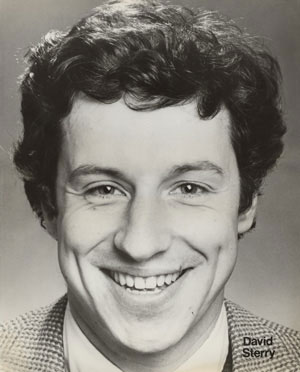
2. Where did the idea come from for your book?
Illustrated coming of age black comedy: Diary of a Wimpy Kid as told by Travis Bickle from Taxi Driver
It’s a story of a boy keeps killing his dads to protect his mom: it’s a story of a boy who really loves his mother.
Two weeks. But it took me 20 years to find a publisher.
Alice in Wonderland. The Tin Drum. Oedipus.
My hypnotherapist.
Vagabondage Press.
It’s got spectacular illustrations by award winning artist Alain Pilon. It’s very short.
We first met Kevin Sampsell when David did his tour for his first memoir Chicken. On his Portland stop, David was scheduled to read at Powell’s, one of the great bookstores not only in America, but in the known universe. He went to college in Portland, and started going to Powell’s when he was an undergraduate, dreaming that someday he might write a book that would live on those hallowed shelves. So it was kind of a dream come true when he saw his name on the marquee of Powell’s. Kevin was Powell’s events coordinator at the time, and he was so nice to David, made him feel right at home, gave him a great introduction, and they bonded as only two book nerds can. We found out that in fact Kevin is also a well-known writer, as well as a publisher. Since he’s worn so many books hats, we thought we would pick his brain about publishing, books, writing, and all that jazz.
THE BOOK DOCTORS: What have you learned about being a writer by working at Powell’s, quite possibly the greatest bookstore on the planet?
KEVIN SAMPSELL: One thing I discovered is that the book world is vast. It’s easy to walk around the store–even the room with literature and poetry, where I work most often–and feel overwhelmed. I sometimes wonder if what I create as a writer will leave any sort of dent. There’s really no way of knowing, so I just have to keep going. But having a couple of my books on the shelf among the million other books is something at least. It’s an honor to be in there, as an employee and as an author. It’s kind of surreal actually.
TBD: What have you learned about being a writer by watching a million writers do events at Powell’s?
KS: I’ve heard a lot of great success stories from writers–how so many of them struggled to get where they are and how persistence pays off. I learned that some writers are good at doing readings and some are not so good at it. I actually just started writing an article where I ask some of my favorite readers how they got so good. There are definitely some tricks and techniques to a good reading. Rewarding the audience that shows up to your reading is very important and you can’t be boring or ungrateful.
TBD: What have you learned about being a publisher by being a writer?
KS: I learned that you have to respect how much time and work a writer has put into their book. I always give the writer I’m publishing a good deal of control in shaping the book and figuring out how it looks, but I’ll make suggestions on how to make it stronger. It’s very important the book is theirs and comes out as good as they want it to, or better. I try to be a lot of things for the authors I work with–a careful reader, a helpful friend who also happens to be an experienced writer, a thoughtful editor, and a creative midwife.
TBD: What have you learned about being a publisher by being a bookseller?
KS: A lot of little details, like how to price a book. I’ve always tried to keep my cover prices on the low side. I’m more interested in getting people to read the books we publish and less interested in the profit margin. Also, that presentation (good cover and interior design) turns out beautiful and professional. Catchy titles can be important too.
TBD: What have you learned about being a bookseller by being a writer?
KS: Just like writers can have a lot of different styles, so can readers. It’s hard to pigeonhole book buyers.
TBD: What have you learned about being a bookseller by being a publisher?
KS: Poetry doesn’t sell. Just kidding. There is some truth to that statement, but not always and not everywhere. I think one thing I’ve learned, as dorky and obvious as this sounds: People who like cool books are usually really cool people.
TBD: What mistakes do you see writers make over and over and over?
KS: Probably the same mistakes I make as a writer–having certain crutch words and phrases, saying something I said ten pages before, going flat at times when there’s a chance for the prose to do something exciting or unpredictable. I also see a lot of writers who complain when their book doesn’t sell and the reason that happens sometimes, is they don’t know how to publicize or promote themselves. A writer is more successful when they’re involved in their literary community somehow. It’s very easy for an author’s book to fade away if they don’t get out in public and meet people.
TBD: How has the book business changed since you first started as a bookseller, a publisher and a writer?
KS: A lot has changed. I started my press in the 90s and I wasn’t even using a computer yet. I would do cut and paste layout on our first chapbooks. Even in the last five years, I feel like a lot has changed–ebooks are a much more valid format and bigger presses are taking less chances. As a bookseller, there are less real bookstores and more people buying on-line. As a writer, I think there are fewer paths to break through on a big press, but on the other hand there are more small presses doing awesome work now. Overall, artistically, I think it’s a pretty exciting time in the literary world.
TBD: Where do you see the future of books going?
KS: I have a very positive outlook on things. It’s hard to predict how actual books are going to do but I’m not freaked out about ebooks taking over. I think there are probably more active readers now because of computers and iPhones or what-have-you. One thing that is sometimes forgotten in this “future of books” discussion is that there are all these awesome presses–big and small–that are producing and designing amazing books. Everyone from Chronicle and McSweeney’s to Ugly Duckling Presse, Rose Metal, Spork, Poor Claudia, and countless other folks who make books that are like art. People who love to letterpress their own covers and use thread and needle to sew their very own books. It’s a crazy and beautiful part of the book world that a lot of people don’t really know about.
TBD: We hate to do this to you, but you have any advice for writers?
KS: Read as much as you write. Go out and meet other writers. Look for stories in everything around you–music, movies, family, strangers, your bus ride to work, and of course the streets. Also–keep moving forward, keep creating new things. Leave evidence of yourself in this world. Imagine what your legacy could be and try to create it.
Kevin Sampsell is the author of the memoir, A Common Pornography (2010 Harper Perennial), and the short story collection, Creamy Bullets (Chiasmus) and the editor of the anthology, Portland Noir (Akashic). Sampsell is the publisher of the micropress, Future Tense Books, which he started in 1990. He has worked at Powell’s Books as an events coordinator and the head of the small press section for fifteen years. His essays have appeared recently in Salon, The Faster Times, Jewcy, and The Good Men Project. His fiction has been published in McSweeney’s, Nerve, Hobart, and in several anthologies. His novel, This is Between Us, will publish with Tin House Books in November. He lives in Portland, Oregon with his wife and son.
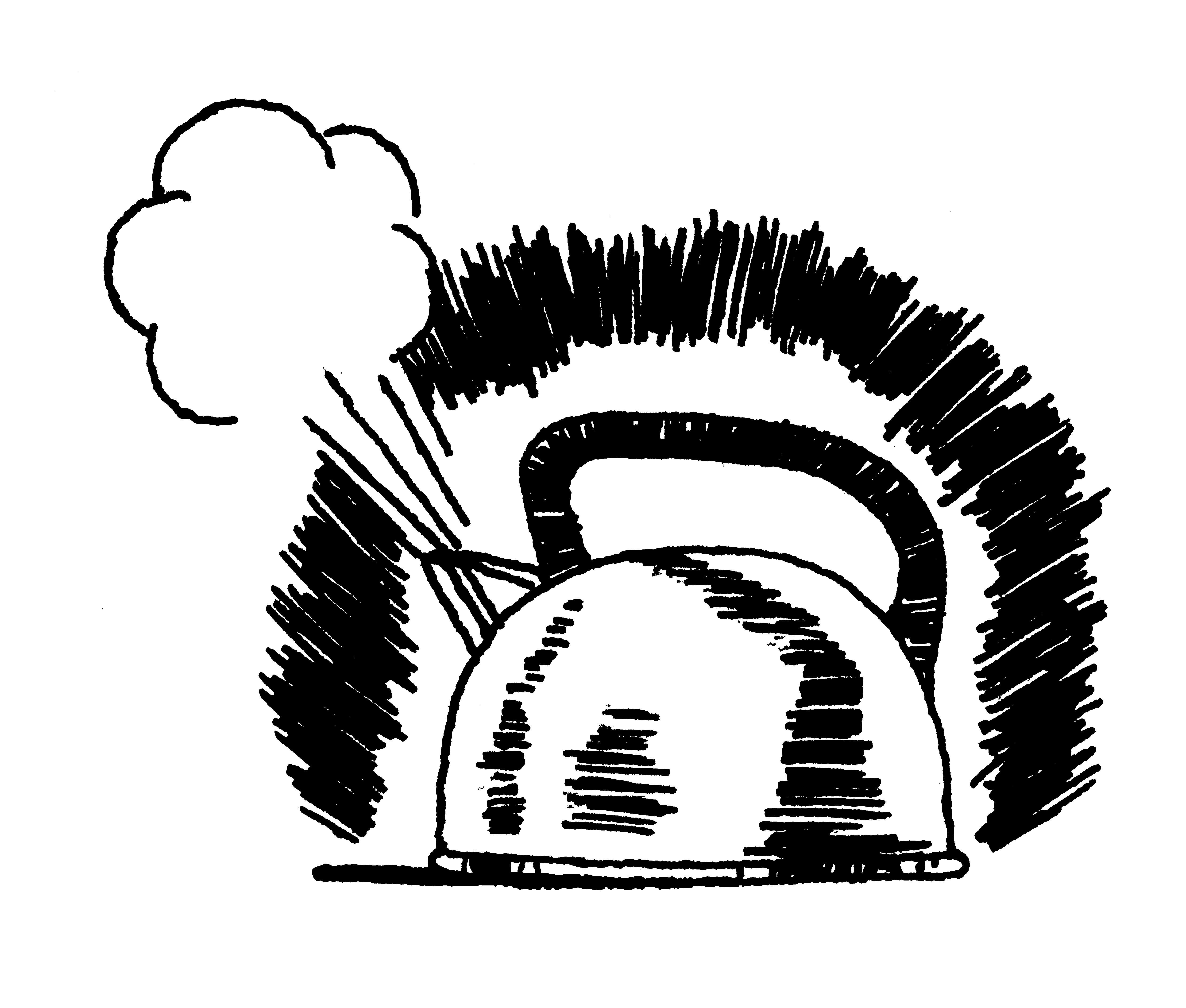
I’m proud to announce that the first book I ever wrote, which I started 20 years ago, is finally coming out. I’m very proud of this book, and the sublime illustrations by one of my favorite artists, Alain Pilon. But perhaps more importantly, this is the book that led me to the love of my life. To read the story behind that, click here it’s my first story on the wonderful website Salon. To see the video trailer, click here. To buy the book, click here.
On my third birthday, my father, in an attempt to get me to stop sucking my thumb, gave me a gun. “Today son, you are a man,” he said, snatching the little blue binky from my little pink hand. So I shot him.
So begins MORT MORTE a macabre coming-of-age story full of butchered butchers, badly used Boy Scouts, blown-up Englishman, virginity-plucking cheerleaders, and many nice cups of tea.
Poignantly poetic, hypnotically hysterical, sweetly surreal, and chock full of the blackest comedy, MORT MORTE is like Lewis Carrol having brunch with the kid from The Tin Drum and Oedipus, just before he plucks his eyes out.
In the end though, MORT MORTE is a story about a boy who really loves his mother.
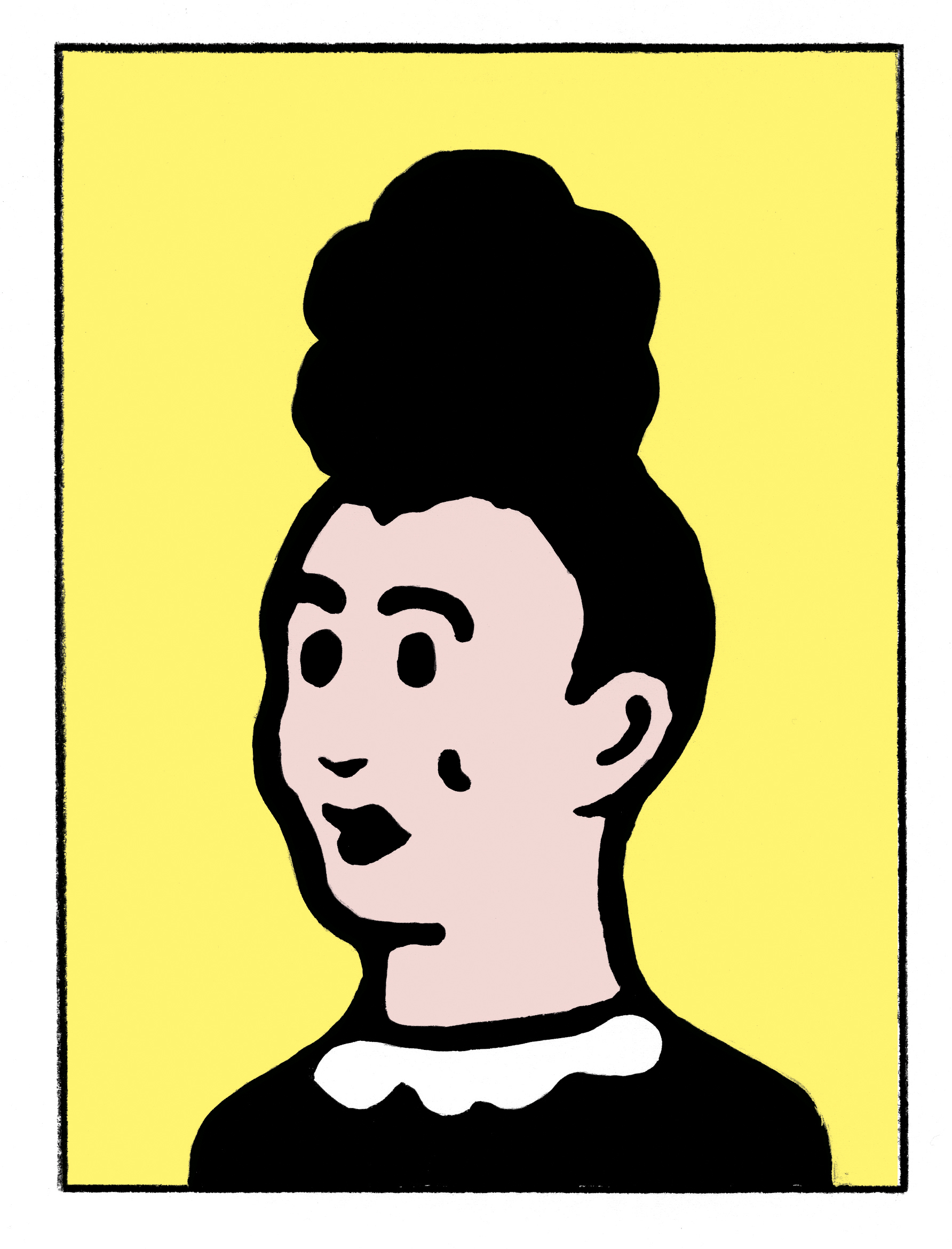
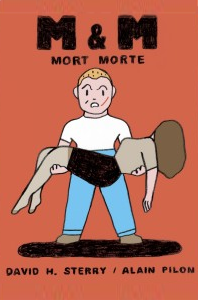
Purchase the BookPaperback : Amazon.com | Barnes & Nobles | Indiebound | Bookadda Discuss the Book |
My new book Mort Morte with beautiful pictures by Alain Pilon. On my third birthday, my father, in an attempt to get me to stop sucking my thumb, gave me a gun. “Today son, you are a man,” he said, snatching the little blue binky from my little pink hand. So I shot him.So begins MORT MORTE a macabre coming-of-age story full of butchered butchers, badly used Boy Scouts, blown-up Englishman, virginity-plucking cheerleaders, and many nice cups of tea.Poignantly poetic, hypnotically hysterical, sweetly surreal, and chock full of the blackest comedy, MORT MORTE is like Lewis Carrol having brunch with the kid from The Tin Drum and Oedipus, just before he plucks his eyes out. Or Diary of a Wimpy Kid as told by Travis Bickle from Taxi DriverIn the end though, MORT MORTE is a story about a boy who really loves his mother.Here’s the story of how writing this book led me to the love of my life, my first piece on Salon.
A new review: “Who do you think of when someone says black humor? Johnathan Swift? Joseph Heller? Kurt Vonnegut? Perhaps Roald Dahl? Well, add David Sterry to your list. His newest book, Mort Morte is as black as sin and twice as fun. It all starts innocently enough. Our three-year-old protagonist, vengeful over his father’s depriving him of his binky, seeks revenge by shooting dear-old-dad with the very gun he had given Mort as a birthday present. Be forewarned, though. After that, things take a violent turn. This pithy little book with its delightfully cheeky artwork escorts us through murder after murder, each more hilariously executed than the last, before our hero is figuratively ridden out of town on a Texas-sized rail. Where does Mort go from there? Surely, you jest! Where else but Harvard? Buy a ticket on this one. You’ll enjoy the ride.” |
Excerpts |
Featured Books by David Henry Sterry
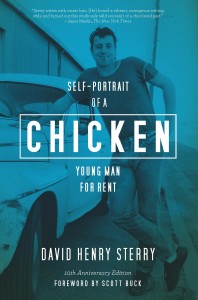 |
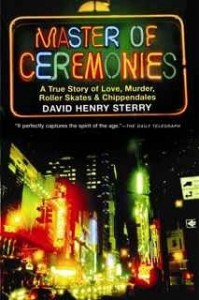 |
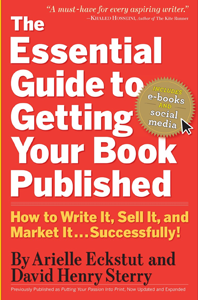 |
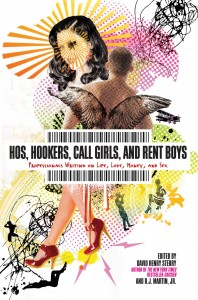 |
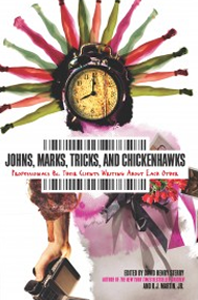 |
 |
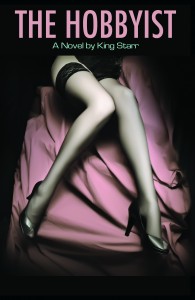 |
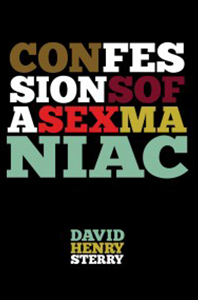 |

 I first met Mark Coker over the Internet. Which seems appropriate, given how he has done such great things for writers in the world of ebooks. I was trying to upload a book onto his company’s website, Smashwords. I have a problem formatting files. I’m very bad at it. It’s a weakness. I’m not proud of it. But the first step is admitting you have a problem.
I first met Mark Coker over the Internet. Which seems appropriate, given how he has done such great things for writers in the world of ebooks. I was trying to upload a book onto his company’s website, Smashwords. I have a problem formatting files. I’m very bad at it. It’s a weakness. I’m not proud of it. But the first step is admitting you have a problem.
 That day, I got very frustrated and sent a flaming email full of vicious vitriol and a few flagrant f-bombs. I expected to get back some generic, useless response, which is what you almost always get back from e-companies. Imagine my surprise when the president of the company himself, Mark Coker, emailed me back. He was so helpful and kind and nice. I was completely embarrassed. It led me to formulate a strategy for what to do when I get flamed — and believe me, I get flamed online every day. Now, before I respond, I think, “What would Mark Coker do?” And I try to give my flamer some love. You’d be shocked by how many times it works wonders.
That day, I got very frustrated and sent a flaming email full of vicious vitriol and a few flagrant f-bombs. I expected to get back some generic, useless response, which is what you almost always get back from e-companies. Imagine my surprise when the president of the company himself, Mark Coker, emailed me back. He was so helpful and kind and nice. I was completely embarrassed. It led me to formulate a strategy for what to do when I get flamed — and believe me, I get flamed online every day. Now, before I respond, I think, “What would Mark Coker do?” And I try to give my flamer some love. You’d be shocked by how many times it works wonders.
So, I resolved my formatting issues quite easily in the end, and I put my book up on Smashwords. It was so cool — they put your book up, for free, on all these different platforms: Kobo, Kindle, Nook, Sony, Apple. FOR FREE! Then we were lucky enough to meet him in, of all places, Wichita, Kansas. We were both presenting at an event put on by the Kansas Writers Association. If you ever get the chance to see him live, do yourself a favor and avail yourself of that opportunity. Despite his mild-mannered alter ego, he’s kind of a superhero of electronic books. He knows so much about them, has
Mark Coker, Founder of Smashwords
such wise advice for readers, and has smart and often counterintuitive things to say about the future of books particularly at this moment in history, when the publishing industry seems a lot like the Wild West. It was a pleasure getting to know him in person, and we are very honored that he agreed to this interview. If you take nothing else from this, just remember, when someone flames you and you feel like lashing out electronically, think: “What would Mark Coker do?”
MARK COKER: Several years ago, my wife and I wrote Boob Tube, a novel that explores the wild and wacky world of daytime television soap operas. My wife is a former reporter for Soap Opera Weekly magazine. We were repped by one of the top NY literary agencies, but after two years, they were unable to sell it to a publisher. Previous soap opera-themed novels hadn’t performed well in the marketplace, so publishers were reluctant to take a chance on us. Our agent suggested we consider self-publishing in print. The idea sounded reasonable at first, but then I realized that without the backing of a major publisher, it would be impossible to get widespread distribution into brick and mortar bookstores, and without distribution, we wouldn’t reach readers. I pondered our conundrum and realized there was a bigger problem at play: Traditional publishers are unable, unwilling and disinterested in take a risk on every writer. Each year, they reject hundreds of thousands of writers, and many of these writers are writing great books. The more I thought about the problem, the more I realized how broken the publishing industry had become. Publishers owned the printing press and the access to distribution, and they alone wielded the power to decide which writers would graduate to become published authors, and what books readers could read. I started to imagine a solution to the problem, and that’s how I came up with the idea of Smashwords. My idea was to create a free ebook publishing platform that would make it free and easy for any writer, anywhere in the world, to instantly publish an ebook. We launched Smashwords in early 2008. The author controls all the rights, sets the price, earns 85% or more of the net proceeds, and receives distribution to major ebook stores such as the Apple iBookstore, Barnes & Noble, Sony and Kobo. Readers decide what’s worth reading.
Our first year, we published 140 books. Our catalog grew to 6,000 in 2009, 28,000 in 2010, 92,000 in 2011, and now, is about 200,000. Our authors routinely hit the top 10 bestsellers at the major retailers, and in 2012, several Smashwords authors even hit the New York Times bestseller list.
BD: Has working with so many writers changed how you write a new book?
MC: The experience has been humbling. He represent most of the bestselling self-published authors. Some of these authors earn thousands of five-star reviews from readers. They’re outselling some of the biggest names in publishing. They inspire me to become a better writer. Since founding Smashwords, I’ve put my own fiction writing on hold and have instead focused on writing books about e-publishing best practices. The best practices I share come directly from our authors.
BD: As a husband-and-wife team, we’ve written seven books together. What was it like writing a novel with your wife?
MC: It was an incredible experience. The two of us moved to Los Angeles for two months to interview soap industry insiders for their stories and dirt. Would you believe there was a soap actress who ate cotton balls as a diet aid? It’s true. Or a manager who raped his actress client when she refused to show him the boob job he purchased for her? After completing our research, we moved to a cabin in the woods of Vermont for four months to fictionalize these and other stranger-than-life stories.
People are surprised when I say this, but co-authorship was a harmonious experience for us, made all the more enjoyable because we were sharing the journey. I imagine the Sterry/Eckstutt team works with equal harmony, otherwise you wouldn’t have written books six through seven together!
The writing process was fun. We plotted the story on big storyboards, and then broke scenes and situations into chapters, and then assigned each other a new chapter each morning. At the end of the day, we’d swap laptops and edit each other, and then swap again for more edits. Our characters took on lives of their own and by the end of the book, the story was much different than we expected. Our first draft was nearly 1,000 glorious pages, and we thought it was great. I note this embarrassing fact to share how completely clueless we were! Thanks to the guidance of some smart book doctors, editors and beta readers, we completed multiple rewrites and revisions over the next couple years. With each revision, we were surprised how much the book improved. I’m a believer in multiple revisions! Finally, the book was ready to shop to agents. In the end, we had multiple agents offering us representation.
BD: What do you think are some of the most important things an author can do to connect with their tribe of readers?
MC: Write a book that moves the reader. Blow their mind and make them scream, “wow!” If you can elicit mad passion in the hearts of your readers, your readers will connect you with more readers through their rave reviews and word of mouth. If you earn mad passion, your readers won’t just suggest their friends read the book, they’ll command their friends to read it. If your friend tells you, “You NEED to read this book now,” there’s no better endorsement.
If an author does nothing else, write an incredible book. That’s 90% of the battle. The other 10% I’d divide into the following four essential items:
1. Give the book a professional, genre-appropriate cover image. Your cover image should be as good or better than what the large NY publishers are putting out. Last year, we documented an example of a Smashwords author, R.L. Mathewson, who simply updated her cover image and it catapulted her to the NY Times bestseller list. This wouldn’t have happened if she hadn’t already written a super-awesome book. A good cover image makes a promise to the reader. It tells the reader, “This is the book you’re looking for.” A poor or inadequate cover image discourages a prospective reader from clicking further. A poor cover makes your book less accessible, less desirable.
2. Distribute your book to every major ebook retailer. Every retailer wants to carry self-published books. Different books break out at different retailers at different times. When you distribute your book everywhere, you maximize the opportunity for readers to discover your book. Unless you’re already an established author with a large fan base and following, most of your sales will come from serendipitous discovery. Readers will browse their favorite bookstore to look for their next read, or their follow the social media hyperlinks of their friends’ book recommendations.
3. Price low. This is where indie authors have an extreme advantage over traditionally-published authors. Indie authors can price at FREE, $.99, $2.99 or $3.99. It’s difficult for traditional publishers to compete at these price points. Low prices make your book more accessible and more affordable to more readers, and since you’re self-published, you’re earning a royalty of 85-100% net vs the 25% net of traditional publishers. Based on our research, which is also conforms to basic common sense, lower-priced books generally sell more units than higher-priced books. More unit sales means more fans and faster platform-building.
4. Make yourself accessible via social media tools. Provide opportunities for your readers to connect with you. Make yourself accessible on Facebook and Twitter, at a minimum. These tools give you the opportunity to do one-to-many communications, and the opportunity to safely and efficiently communicate with your growing tribe. Provide your social media coordinates at the back of every book you write.
BD: What are some of the biggest obstacles writers have to overcome to successfully selling e-books?
MC: The biggest obstacle is obscurity. Thanks to the rise of ebook self-publishing, there’s a glut of high-quality, low-priced books in the marketplace. This means writers need to raise their game. The best writers will rise above the noise on the wings of reader word-of-mouth. If you’re not averaging four to five star reviews, it means your book isn’t satisfying readers as much as it should.
BD: What are some of the mistakes you see writers make when they publish their ebooks?
MC: Here are the top mistakes I see:
1. Publishing a book before it’s been properly edited and proofed. Readers have little patience for sloppiness. You’d be surprised how often I see books ridden with typos. I’ve seen authors misspell their own names on their cover image, or misspell words in their book description.
2. Poor cover design. Unless you’re a professional graphic designer, don’t try to design your own cover image. Hire a professional. Professional cover design is ridiculously affordable. For between $50 and $300, you can get a cover design that looks like it came from a big New York publisher.
3. Impatience. Impatience is both a virtue and a sin. It’s great that an author feels a sense of urgency to reach readers, but impatience can also lead to discouragement, depression or tempestuous decision-making. I’ve seen authors remove their books from stores weeks after publication simply because they’re not selling well. Sometimes, it can take years for an ebook to reach a critical mass of reviews and readership to start selling well. Back in the old days of print publishing, impatience was warranted. If your book didn’t immediately sell well, retailers would pack up the unsold inventory and return it to the publisher for a full refund. Books were forced out of print before they had a fair chance to reach readers. With ebooks, there’s always tomorrow. Ebooks are immortal. They need never go out of print. Think of your self-published ebook as an annuity. It will earn you and your heirs income for decades to come if you keep it out there. This is especially true for fiction. Great stories are timeless.
4. Paranoia and delusion. Almost every month, I receive an email from an angry author who will say something like, “I know I might not be the world’s best author, but there’s no way my book is selling so poorly at retailer X.” This is dangerous thinking. Back in the old days of print publishing, a publisher would distribute a known quantity of books to retailers. Books would either sell or be returned, so there was never any doubt about how many copies were sold, and how much money was owed to the publisher. In the new world of ebooks, the entire ebook supply chain is built upon trust. Smashwords, as your distributor, will send out a single digital copy to each retailer, and the retailer will duplicate that copy for each book they sell. You must trust the retailer to accurately track and report and pay for units sold, and you must trust your distributor to accurately pay you your share of monies received from retailers. If you still feel bitten by the paranoia bug, be your own secret shopper. Once a quarter, buy your book from a retailer, and then wait for the sales report to flow through. Mistakes do happen, but rarely. I can think of three instances over the last two years when an author’s paranoia actually helped a retailer discover an error in their reporting. Even paranoid people get it right from time to time!
5. Limiting distribution to only one or two retailers. If your book isn’t distributed to every retailer, you’ll probably reach fewer readers. If you distribute to only one retailer, you could make yourself dangerously dependent upon that retailer. If they modify their terms, or change their discovery algorithms, you might go from selling great for months straight to selling nothing. Don’t treat ebook retailers like a horse race. Instead, play the field. Get your book everywhere, and then you don’t need to worry or guess which retailer will become the dominant retailer five years from now. You’ll be there already. Every retailer reaches its own unique audience of readers. Many retailers are now opening international stores. Every retailer’s store in each unique territory represents its own unique micro-market where you have an opportunity to reach readers and build fans. If your book isn’t there, those readers will develop life-long relationships with other authors.
6. Negativity. We writers tend to feel our feelings more deeply than the average person, and we’re adept at wielding the power of the pen. Once we build our social media platforms, we have greater ability to share our feelings with the world. It’s something about human nature that when we feel angry, we’re more expressive than when we feel happy. We feel tempted to lash out and hurt those who have wronged us. When you combine anger with social media, people get hurt. Every day, everywhere on the net, there are angry authors sharing their negativity with their closest 5,000 friends on Twitter or Facebook, lashing out against real or imaginary demons that have somehow harmed them. Don’t succumb to negativity. Your fellow authors may learn to fear you, but they won’t respect you. Your prospective readers will be turned off. Your potential partners and supporters will avoid you. think New York Times bestseller Jonathan Maberry put it best in an interview at the Smashwords blog last year. We asked him how authors should use social media, and he spoke at length about the power of positivity, and why authors should never succumb to negativity. He said, “Even if you are a naturally cranky, snarky, sour-tempered pain in the ass, for god’s sake, share that with your therapist or priest. When you go online to promote yourself and therefore your products, try not to actually scare people off your lawn.”
BD: How do you deal with cyber flaming?
MC: I start by taking a deep breath. We’re working with 50,000 authors, and we’re selling books to millions of readers. As much as all 19 of us here at Smashwords work tirelessly to serve our community to the best of our ability. We invariably make mistakes, or fall short of someone’s expectations, and this often leads us to be flamed by a disgruntled person. Also, because Smashwords is the world’s largest distributor of self-published ebooks, upstart competitors are attacking us all the time, often spreading fear, innuendo or mistruths to advance their own agendas, or to draw us into a public fight so they can trade off of our brand equity. It’s classic guerrilla marketing. Popular authors face remarkably similar situations, where readers or fellow authors will try to drag them into a public brawl so the attacking party can advance their agenda.
My approach is that I try to listen to everyone. Our critics can make us stronger if we listen, learn and make positive improvement. Even if I don’t agree with you, or I don’t think you should be upset for the reasons you’re upset, I still try to understand the problem, acknowledge that their feelings and experience was real to them, and learn from the criticism. Often, our most vocal critics are simply feeling real issues more strongly than the community at large. I view our critics as our canaries in the coal mine. They’re our early warning system, so we ignore them at our peril. To the extent possible, I try to avoid getting dragged into public brawls. If I see blatant misrepresentations or lies, however, I’ll step in and try to correct the record. I avoid leveling attacks against any individual, because more negativity only escalates the situation. I try to calmly listen, learn and understand, and then state my side of the story. Often, my reply will start by acknowledging the veracity of their claim, if I believe it is in fact a valid criticism. In this age of hyper-transparency, you must always stick to the truth, or be willing to acknowledge mistakes. I have multiple Google alerts set up — and would encourage every author to do the same for their name, book titles and keywords. I think people are often surprised when I join an online conversation, both to refute mistruths or to simply thank someone for their kind words. I’m also very accessible via email. Our authors aren’t afraid to share their opinions about where they think we’re falling short. Long story made short, as much as it’s uncomfortable to hear criticism, I also treasure it.
BD: So, what is the secret to ebook publishing success?
MC: I actually wrote a free ebook on this subject! It’s titled The Secrets to Ebook Publishing Success, and it identifies the 28 best practices of the most commercially successful ebook authors. At the risk of repeating some of what we covered above already, here are the top 12 secrets to success for indie ebook authors:
1. Your best marketing is a great book. So many authors obsess over marketing when they should instead obsess over making their book better. If you’re only averaging three stars out of five, consider a major revision. When I look at our bestselling books, they’re getting four and a half to five stars, on average.
2. Create a great cover image. Next to a great book, a great cover image is the most important marketing tool. It’s the first impression you make on the reader’s path to discovery. It tells the reader if you’re professional, or not. It makes a promise to the reader about the genre and the experience they’ll receive.
3. Publish another great book. The bestselling authors at Smashwords are writing and publishing multiple books. Each new book creates the opportunity for you to reach new readers, and to build greater loyalty among existing fans. A new title will often reinvigorate your entire back catalog. Make sure each book you publish references the other books you’ve written, especially at the end of the book when the reader will be the most hungry to read more of your work.
4. Patience is a virtue. Your ebook is immortal, unless you make the decision to kill it. Never remove a book from distribution, not even for a short time, because you’ll alienate existing fans, and prevent new fans from discovering you.
5. Maximize availability. Every major retailer — from the Apple iBookstore to Amazon to Sony to Barnes & Noble and others — wants to carry self-published ebooks. All these companies are investing millions of dollars to connect new readers to your book. Just as an investment advisor would advise you against investing all your eggs in a single basket, diversify your retailer exposure so you’re not overly dependent on a single retailer.
6. Avoid exclusivity. This is the corollary to secret #5. One retailer — Amazon — is pursuing an aggressive strategy of enticing authors to make their books exclusive to Amazon. When you make your book exclusive to a single retailer, even for a short time, you disappoint readers who prefer shopping at other retailers, you limit the discoverability of your books and you make yourself more dependent upon a single retailer. Exclusivity is risky for the author. For some authors it pays off, and for others it fails. Amazon’s exclusivity strategy has caused much debate and rancor within the indie author community. I wrote a column here at Huffington Post about it last year. I’ve been one of the more outspoken critics of their exclusivity strategy because I think in the long run it will be harmful to authors, retailers and readers.
7. Trust your readers. Don’t worry about piracy. Copy protection schemes are counterproductive, and will only harm your loyal, legal readers. If your reader does share an illegal copy of your book with a friend, consider it the lowest-cost, highest-impact form of fan-building and marketing money can’t buy.
8. Implement Viral Catalysts. I created a term I call Viral Catalyst. A Viral Catalyst is anything that makes your book more available, more discoverable and more enjoyable to readers. Think of your book as an object, and attached to the object are dozens of dials and levers you can twist, turn and tweak to improve the word-of-mouth virality of your book. These dials and levers are Viral Catalysts. Examples of Viral Catalysts include your cover image, story, editing quality, the book title, book description, price, distribution reach and categorization. Consider every one of these elements in isolation. Ask yourself how you can improve each element to make your book more available, discoverable and enjoyable. My point here is that there’s not just one thing you can do to enable successful word-of-mouth. You must do many things just right, while avoiding common mistakes that can sabotage your success.
9. Unit volume is a lever for success. When a book sells, most authors think of the royalty as their reward. There’s actually a second, and possibly more important benefit of the sale, and that’s the reader. A reader is a potential fan, and a true fan will market your book to their friends and wait anxiously to purchase your next book. The secret to maximizing unit sales volume, other than writing a great book worth buying, is to price low. Based on our research, a book priced at $2.99 will earn about the same amount of money for the author as a book priced above $10.00, yet the $2.99 book will get you about six times as many unit sales. Therefore, if the lower price drives more unit sales, price lower to build your fan base faster. This is one of the most important advantages that indie authors have over traditionally published authors. Indie authors can build fans and platform faster because they can price lower. If you write series, consider making the first book in the series permanently FREE.
10. Practice positivity and partnership. I touched on this earlier, but I’ll add additional color here. Publishing has always been a relationship business. Relationships give you an upper hand in the marketplace. Your fellow authors are your partners, not your competitors. Help your fellow authors succeed, and they in turn will open doors for you. When you complain online about your least-favorite retailer, that complaint is permanently available and discoverable for that retailer to see. When it comes time for a retailer to do a special promotion of certain titles, are they going to promote authors who have been trashing them online, or authors that have positively supported them?
11. Think globally. The ebook market in the U.S. has grown exponentially over the last few years. In 2007, ebooks accounted for less than 1% of the U.S. book market. Today, that number is over 30%. The growth in the U.S. market is slowing. However, the markets outside the U.S. for English language titles are entering the same exponential growth curve phases the U.S. market experienced over the last few years. The market for English language ebooks outside the U.S. will be much larger than the US.. market. Every major retailer is expanding internationally. Apple now operates iBookstores in 50 countries. Amazon is in close to ten countries. Kobo has always had an international focus. Barnes & Noble is expanding internationally. 2013 will see more global expansion from all these retailers. Get your books distributed globally now, because each retailer’s country-specific store represents a unique micro-market for you to start building fans and platform.
12. Pinch your pennies. Ebook self-publishing has become something of a gold rush. Everyone is rushing to do it, but the people who stand to make the most money are the ones selling the pots and pans. The cold hard truth is that most ebooks — whether traditionally published or self-published — don’t sell well. You, as the self-published author, are the publisher. You’re running a business. If you run your business profitably, you’ll survive to write another day. If you’re losing money, you’ll eventually be forced out of business unless you’re financially secure through other means. As a small publisher, you can’t easily control your sales, but you can control your expenses. Minimize your expenses. When you’re just getting started, do as much on your own as possible. Never purchase publishing packages from the vanity publishing services who will gladly empty your pocket of thousands of dollars for services of nebulous value. Ebook self-publishing can be fast, free and easy if you do it yourself. Never go into debt to finance your publishing adventure. Never spend money you need to put bread on the table or to pay a mortgage. If you pinch your pennies, profitability will become all that more achievable. Once you hit profitability, then carefully reinvest your dollars into better cover design, better editing and better marketing.
Mark Coker is the founder of Smashwords, an ebook publishing and distribution platform. He’s also an author, entrepreneur, angel investor and advisor to technology startups.
Mark and his wife Lesleyann co-authored Boob Tube, a satire on daytime television soap operas. Their book was rejected by every major New York publisher of commercial women’s fiction, despite representation by a top NYC literary agency. The experience inspired him to start Smashwords, a free publishing platform that allows authors to instantly publish their work online.
Today, Smashwords is the world’s largest distributor of self-published ebooks. The company has helped over 50,000 authors around the world publish and distribute over 150,000 ebooks to major retailers such as the Apple iBookstore, Barnes & Noble, Sony and Kobo.
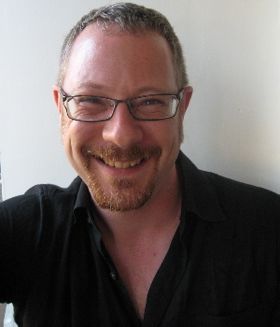
Richard Nash, publishing savant, on how to get love from independents and the future of the book business with The Book Doctors on Huffington Post
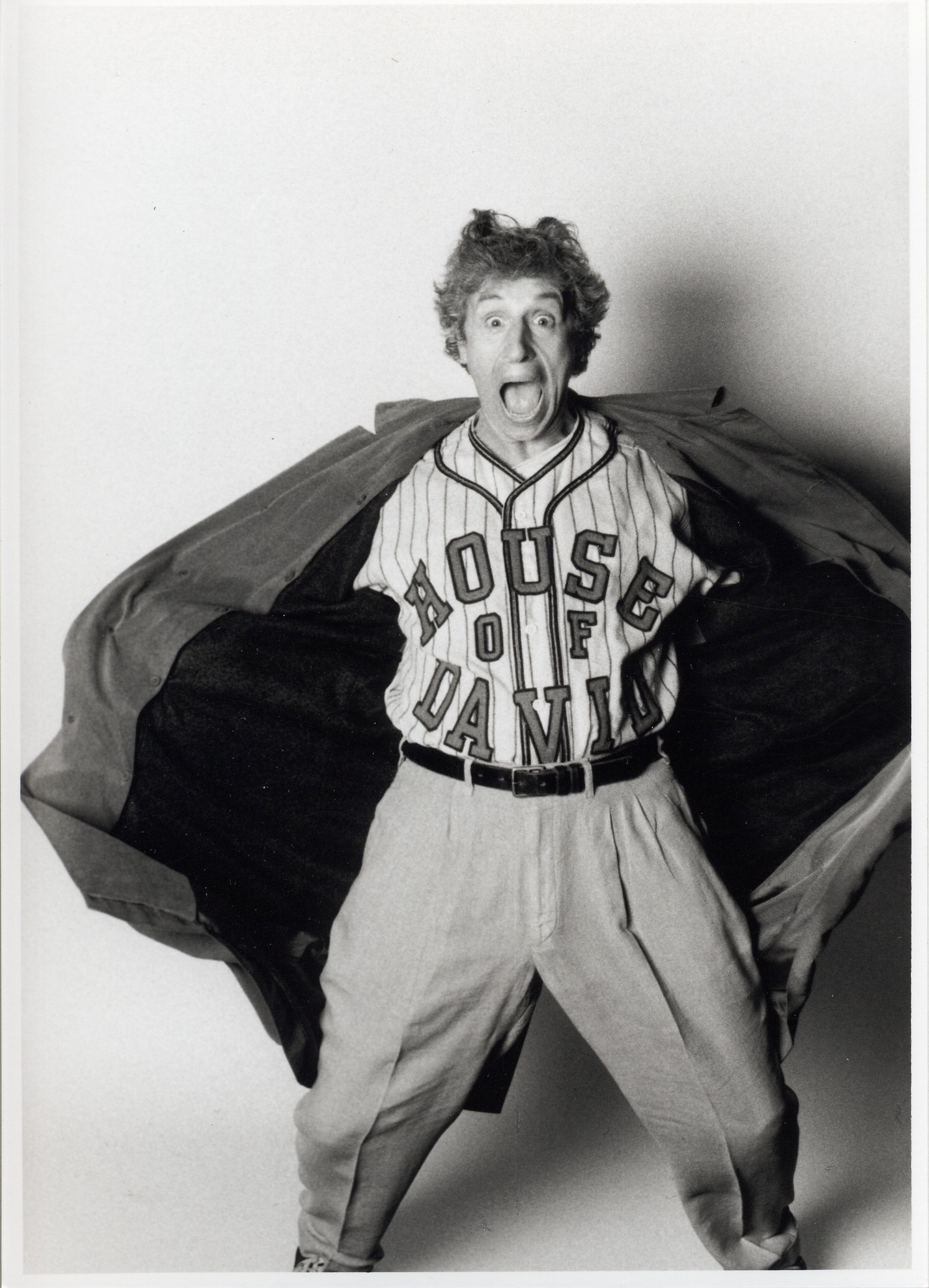
Storytelling event RISK! I tell a story about getting clusterfucked in a crackdown smackdown. True story!
Interview about how to get published, reading, writing, sex and life on Dawn Smith Books. Buy the printed version of my new novella Confessions of a Sex Maniac for $4.99 & get a free 20 minute consultation for your writing worth $100 from The Book Doctors. (with proof of purchase)

sweet review of pitchapalooza from randa’s fans, by a total cynic skeptic.
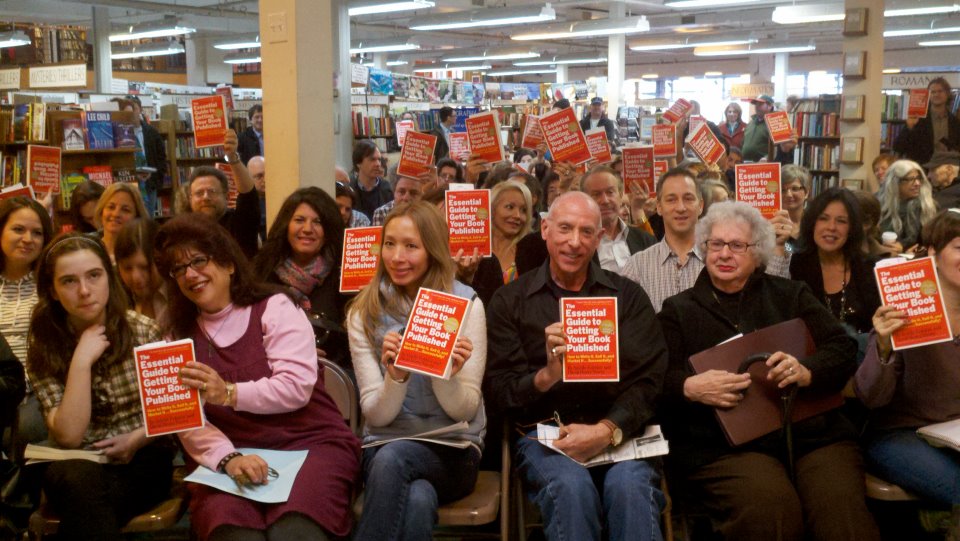
georgetown patch on pitchapalooza @ politics & prose http://georgetown.patch.com/blog_posts/country-mouse-review-of-pitchapalooza-part-1-introduction
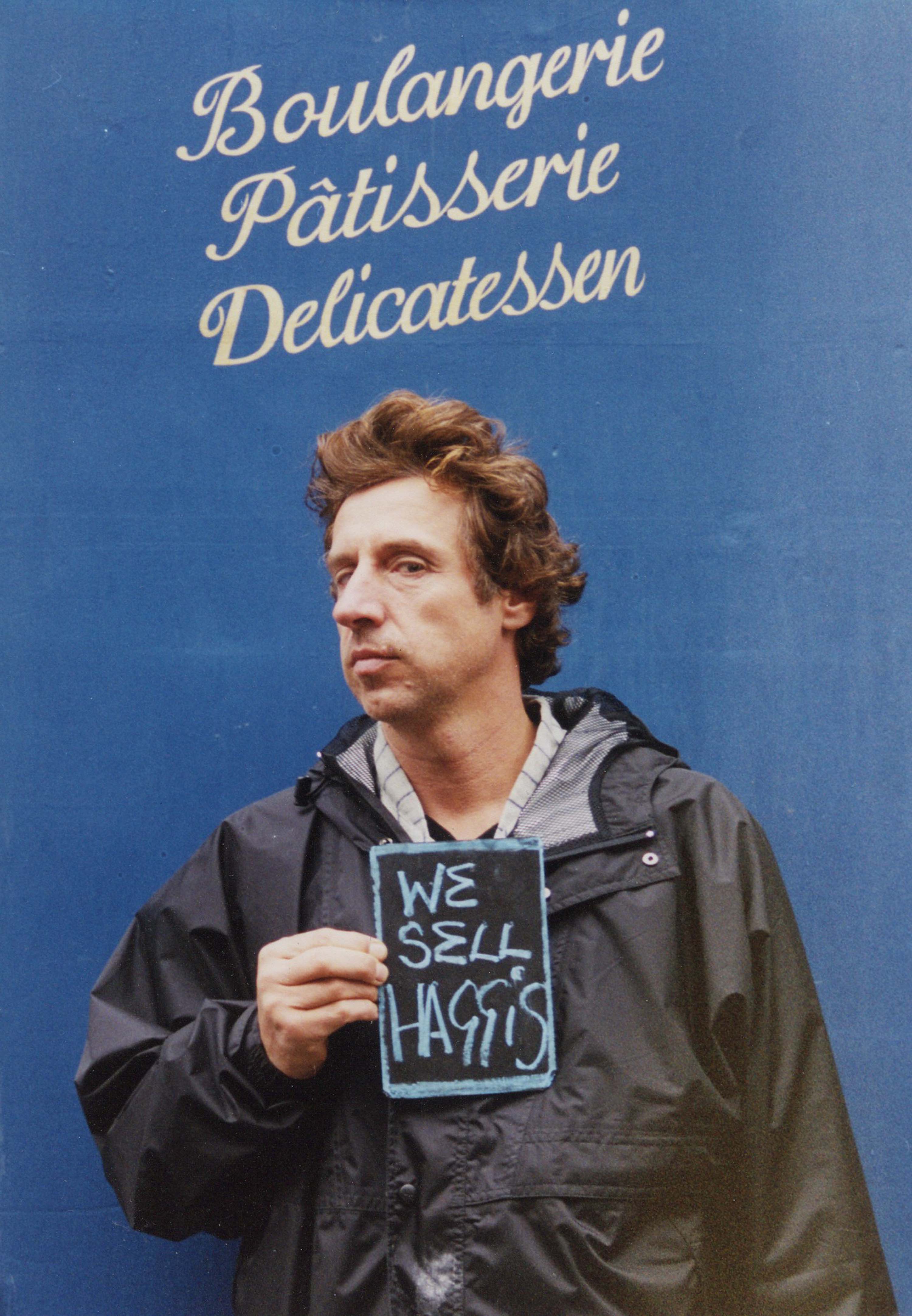
 Some small advice about how to get published & whatnot on Gotham Writer’s Wokrshop website! http://www.writingclasses.com/WritersResources/AuthorAdviceDetail.php/author_id/195073
Some small advice about how to get published & whatnot on Gotham Writer’s Wokrshop website! http://www.writingclasses.com/WritersResources/AuthorAdviceDetail.php/author_id/195073
Washington Post with a lovely piece about David Henry Sterry, Arielle Eckstut, P0litics & Prose, The Book Doctors & Pitchapalooza
Suddenly I found myself falling down a rabbit hole in Easton, Pennsylvania at Lafayette College, and ending up in a Wonderland known as the Experimental Printmaking Institute. It’s overgrown with wild and beautiful art books, from the surreal and phantasmagorical, to the wacky and wonderful, to the exquisite and breathtaking. Fold-out books, accordion books, woodcut books, black light books, silkscreen books. It was like winning a Golden Ticket to Willy Wonka’s factory, only instead of sweeties everywhere, there was fabulous wall-to-wall eye-candy for a book lover such as moi. Curlee Raven Holton, who runs the joint, has assembled an astonishing collection of handmade art books, and established a workshop where time honored bookmaking techniques can be combined with contemporary, state-of-the-art ideas and technology, passing down to the next generation the tradition of making books by hand that dates back to huddled, hooded monks creating the Guttenburg Bible. MaryAnn Miller, a poet and artist of much skill and talent in her own right, introduced me into this strange and beautiful world. I asked her what she was working on, and she showed me The Souls of Fallen Flowers, the breathtaking art book she is stitching together one at a time for the writer Khet Mar, to be presented at a book signing and reception on Friday, February 24, at the Chateau Chavaniac in Easton, PA. When MaryAnn told me about Khet Mar’s heartbreaking and monumentally inspiring odyssey, from being locked up in a Burmese prison for her revolutionary writing, to her harrowing escape and subsequent relocation to City of Asylum in Pittsburgh, I felt like it was my duty to tell the world her story.
DAVID HENRY STERRY: Tell us about your childhood. Where did you grow up, and what was it like?
KHET MAR: I grew up in a fishing village. My childhood time was like a huge field with valuable plants and terrible weeds. I didn’t notice how much I liked my childhood time until I was a teen. I still have things to write about my childhood even though I have been writing for 23 years.
DHS: What drew you to being a writer?
KM: I could say one of the basic reasons that drew me being a writer was I loved writing. I grew up with my father’s books and my grandmother’s books. The most important one that drew me being a writer was my grandmother’s encouragement to me to write. My grandma is a book-worm and a primary school teacher. In rural communities, general reading is seen as a bad thing for the middle-school-children, yet my grandma disciplined me and provided books for general reading. This was, of course, the turning point of my life. Being a book-lover, I tended to share my own feelings. Recalling my memory, I wrote my first short story while I was in Seventh Standard for a newspaper we posted on the wall of the middle school. Grandma read it carefully and ‘My grand-daughter can be a writer”, she commented. This very comment of my grandma made me dare to dream to become a writer. Being a girl from a poor family of rural area, without any background of literary field, the purpose, becoming a writer was appearing as a dream. However, I was able to start such a dreamy road by my grand-mother’s loving-kindness and hopeful comment.
DHS: You were only 22 when you were arrested. Why were you arrested, it must have been shocking. What exactly happened, and how did it feel?
KM: When I was a third year university student in 1991, there were few anti-government campaigns in the University. Those were remnants of the vital 1988 uprising that 3000 people were killed and about twenty thousands were arrested. Protestors in 1991 demonstrations asked for the freedom of political prisoners and Daw Aung San Suu Kyi, who is the 1991 Noble Peace Prize laureate who has been under house arrest since 1989. I wrote some political poems and distributed them with friends in the demonstrations. Because of those reasons, I was arrested and was sentenced 10 year imprisonment.
DHS: What was it like in prison? Did you make relationships with other prisoners? What were your captors like?
KM: Prison was like a prison, not like a home. We had to sleep on the concrete floor. We had to eat what they fed. We had nothing to read and write. I made many friends in the prison. Most of my friends who I met in the prison were arrested again and again. The captors were various kinds. I was interrogated by several police intelligences. They used different methods to interrogate to not only me but to every prisoner. Some were soft-liners and some were very cruel.
DHS: How did you get released from prison?
KM: When General Than Shew got power, I was released with other prisoners including some political prisoners in a national amnesty. Burmese authorities usually create an amnesty when a new leader got the nation’s power. General Than Shwe was in the top position for 23 years until 2010.
DHS: When Cyclone Nargis hit, you were almost imprisoned again. Why did this happen, and what were the consequences?
KM: Although about 300,000 died and three millions people became homeless because of Cyclone Nargis, Burmese government did not allow international help and aid. How could I stay away to help the cyclone victims because we all knew a lot of people were dying? I did relief works with my friends. I brought some international journalists to the affected areas when the authorities tried to stop even citizen journalists going there because I wanted international community know about the actual situation of the victims. Doing relief works were dangerous and bringing international journalists to the area were also very risky. The consequences were I was under watch and was investigated by many ways. That was one of the reasons I wanted to be out of my country.
DHS: How did you end up in Pittsburgh?
KM: I tried to be out of country for a few months until 2010 election in Burma. I applied some program that I could be out of my country for a few months. I was selected as a writer-in-residence at the City of Asylum/Pittsburgh. That’s why I end up in Pittsburgh.
DHS: What is your life like now?
KM: My life is like I am at my second home. I feel safe here. Not only myself, but every citizen in Burma felt unsafe.
DHS: The new publication of your book seems to be the culmination of a long arduous ordeal. How did it come about, and how do you feel about it?
KM: I was invited through City of Asylum/Pittsburgh as a writer-in-residence at the Lafayette College in November 2011. One of the projects in my residency term was to make a book of my pieces. It is a very beautiful flower of my effort. I have been very exciting about this book. I can’t wait to see it.
DHS: What do you hope the world will get out of your book, and your experience?
KM: I usually try to share about the truth of my country and my people when I write. I tried to include the pieces that can let readers know about them. My concern abut my book is sometimes I used metaphors and symbols in my writings to avoid censorship in Burma. I hope the readers will figure it out.
Khet Mar is a writer and activist from Burma. A book signing and reception will be held for her book The Souls of Fallen Flowers, in conjunction with Lafayette College’s Experimental Printmaking Institute on Friday, February 24, at the Chateau Chavaniac in Easton, PA.








